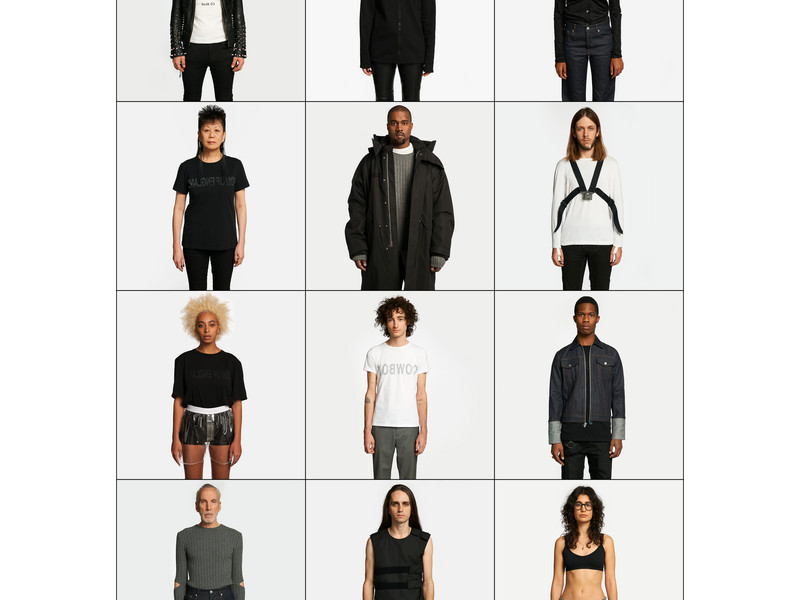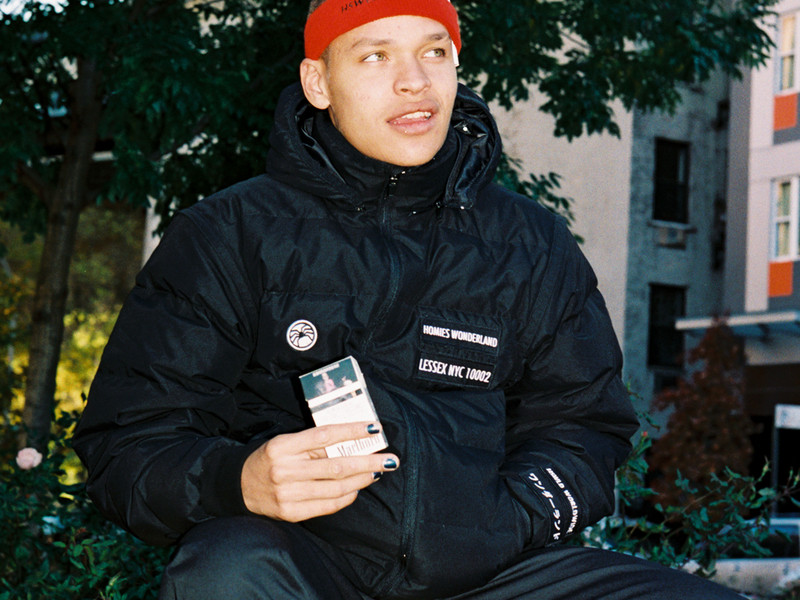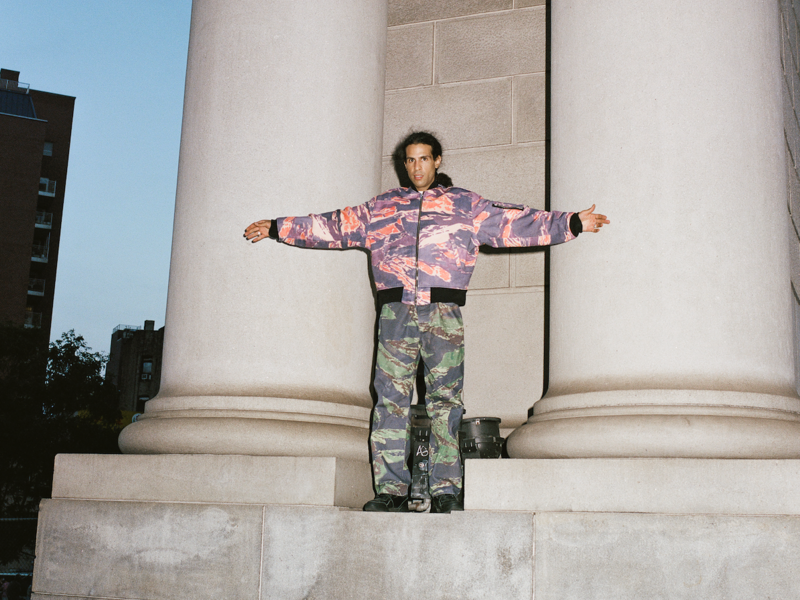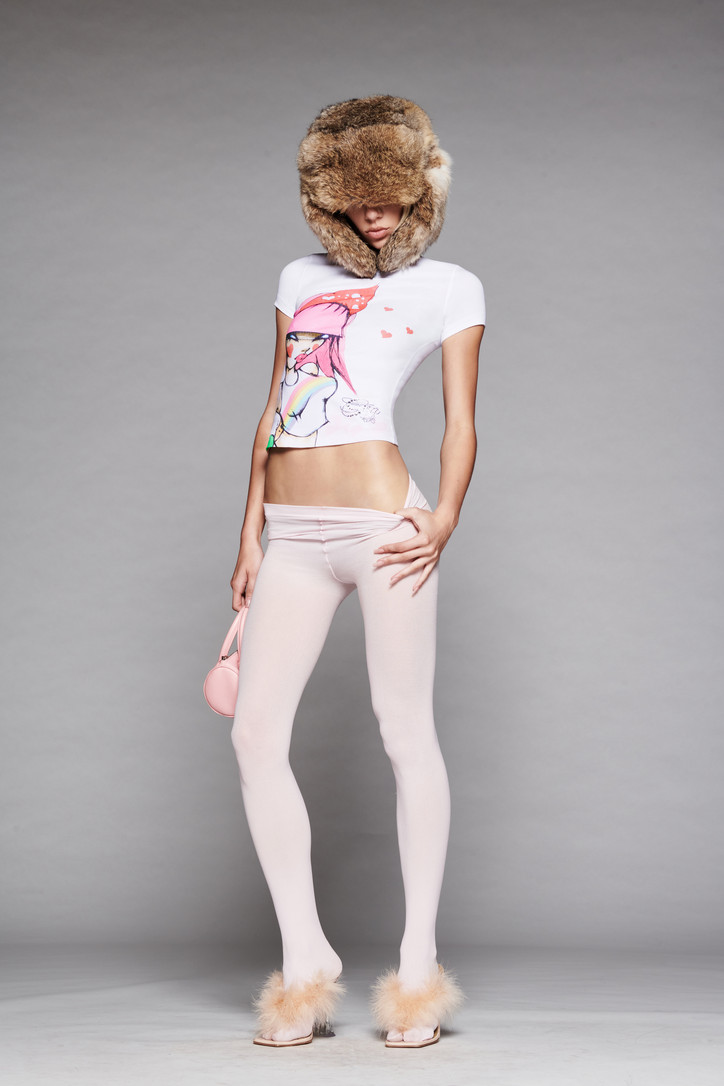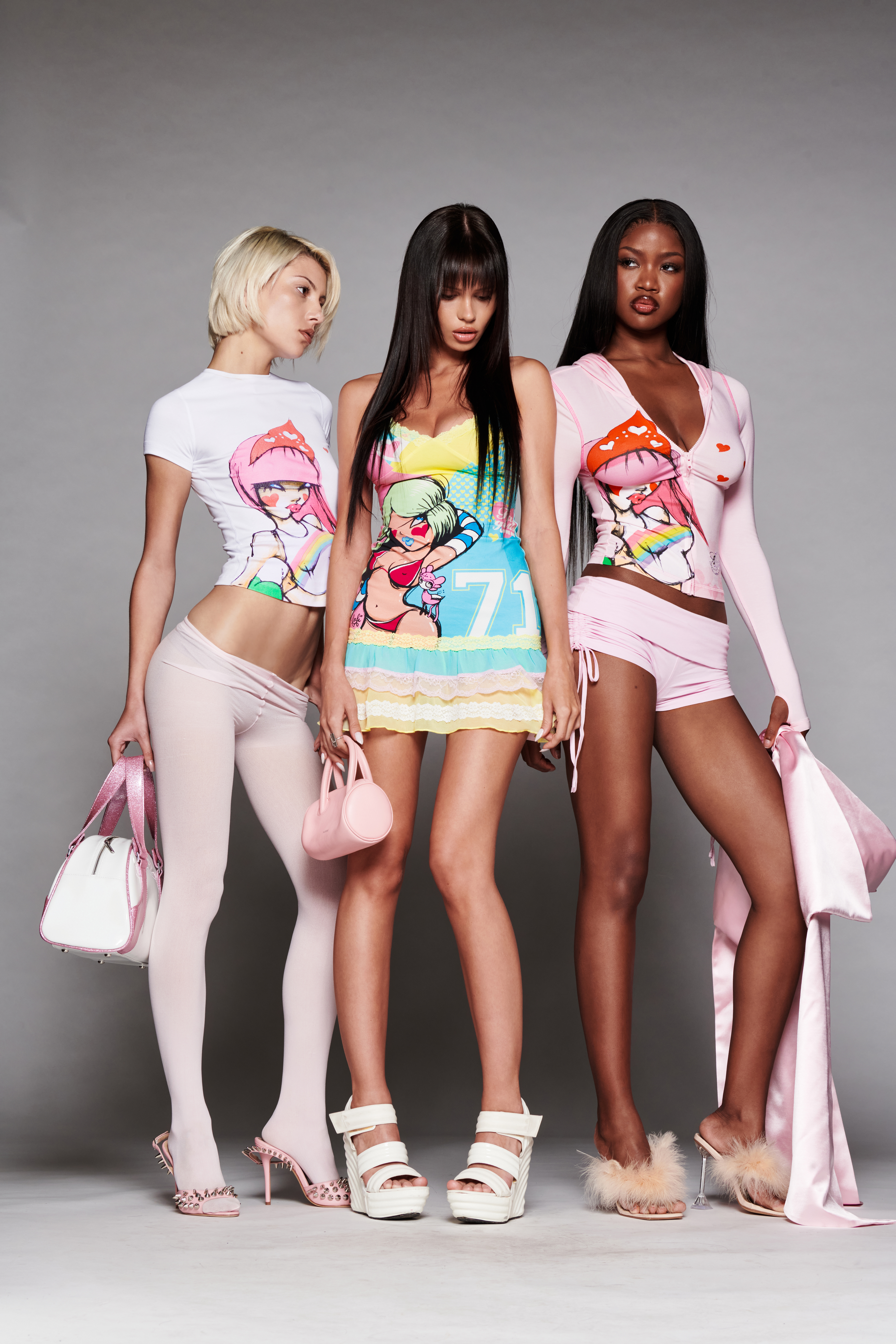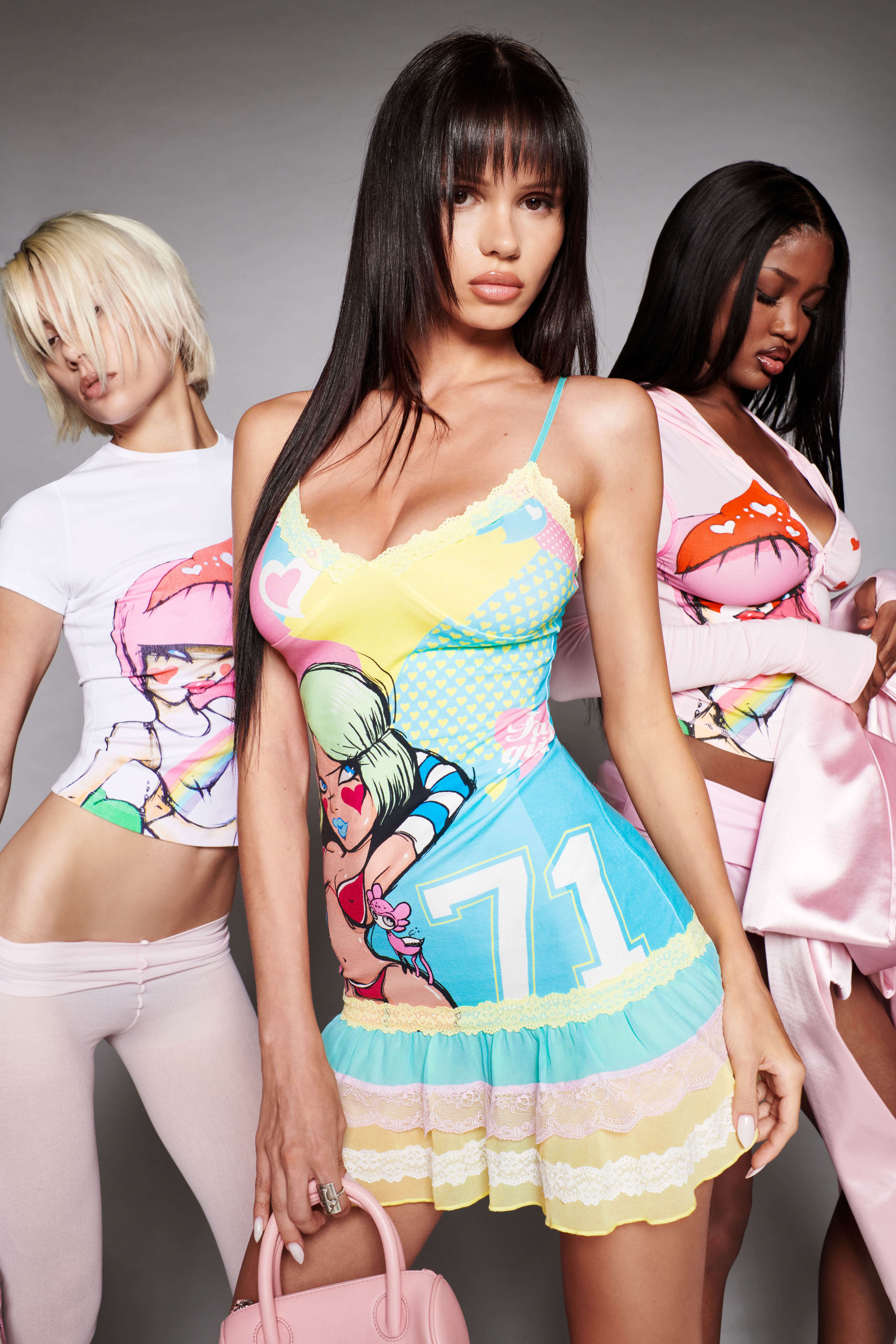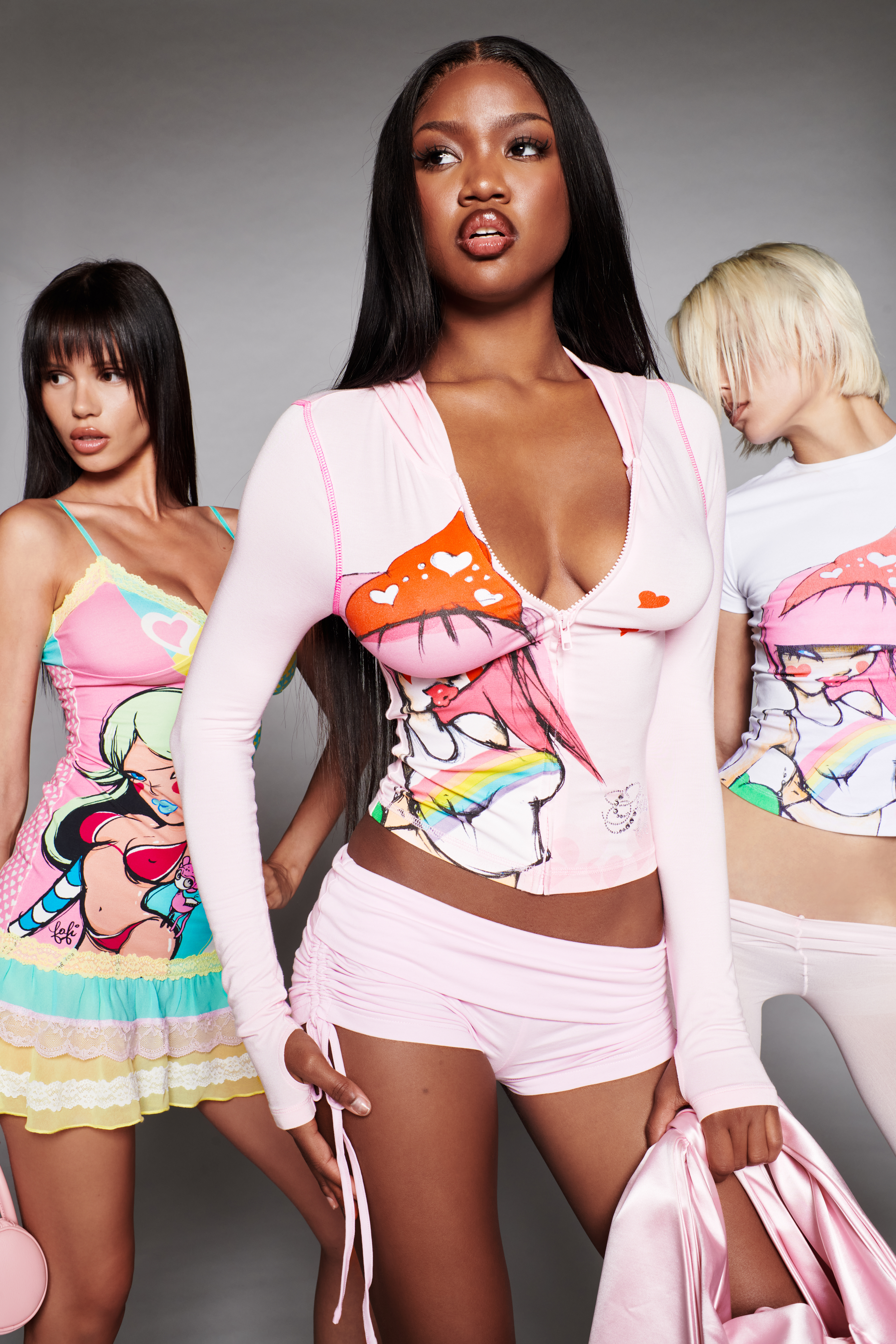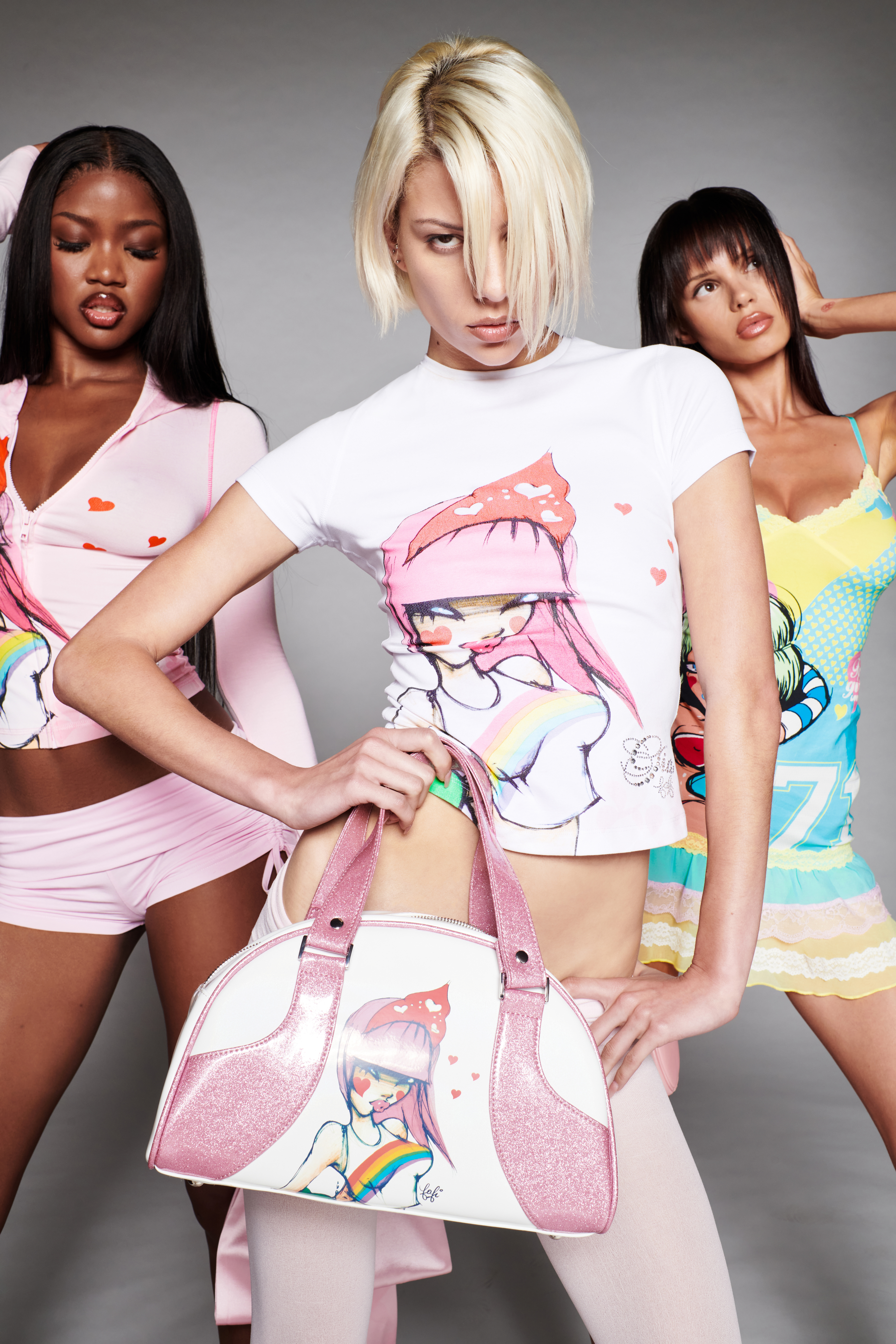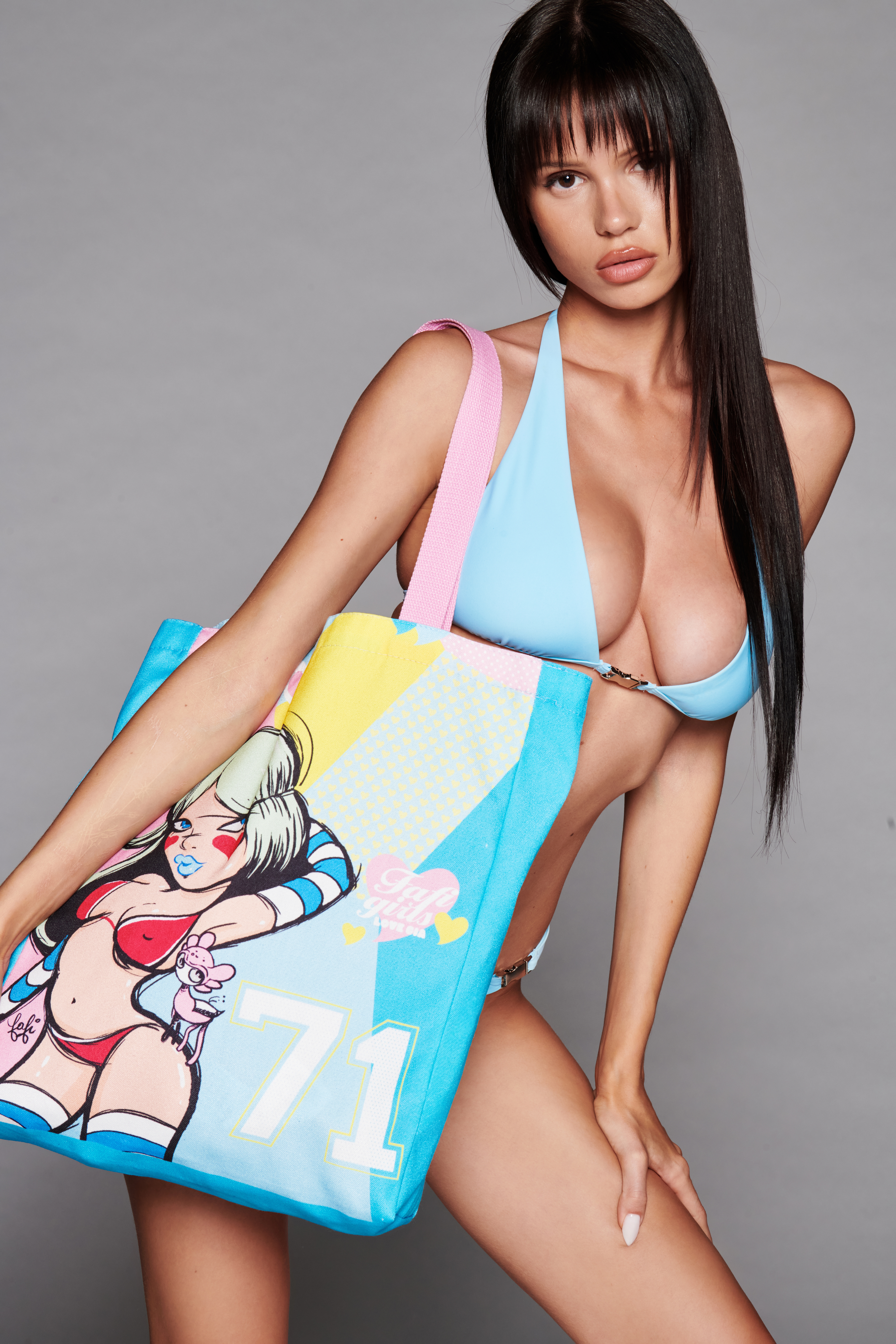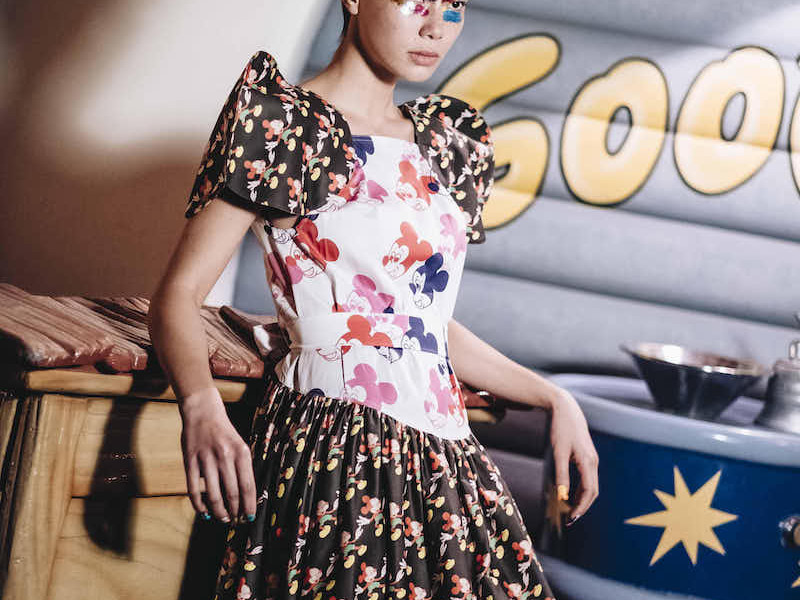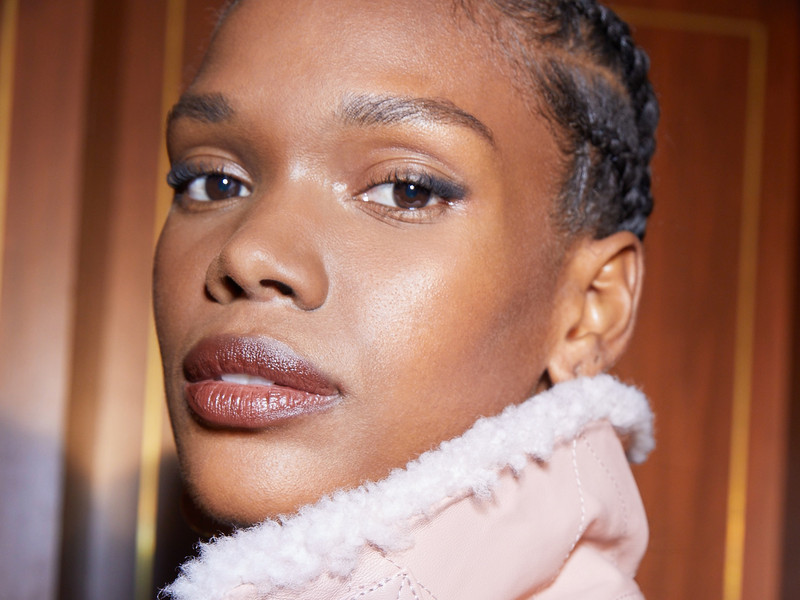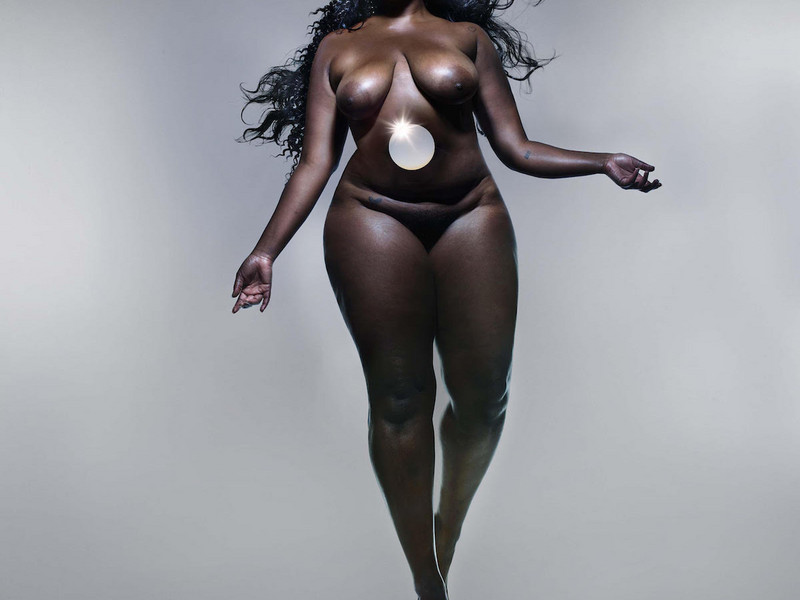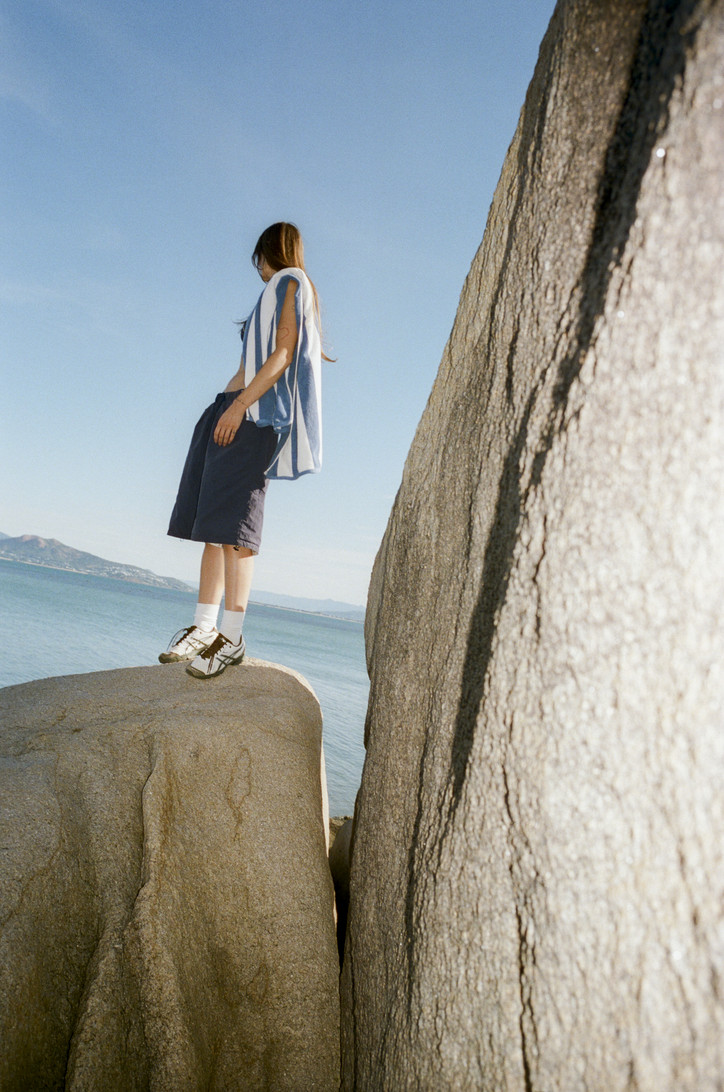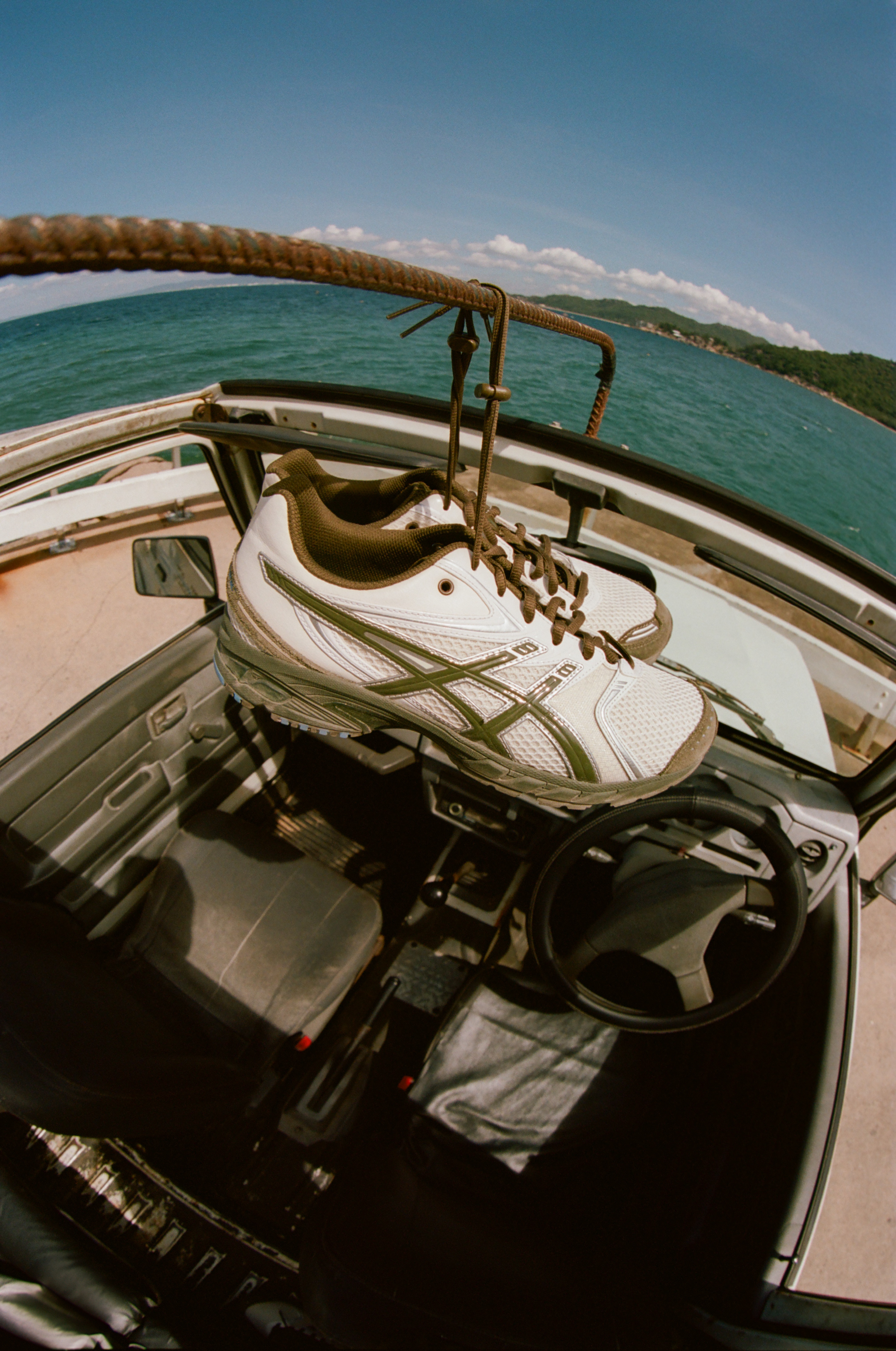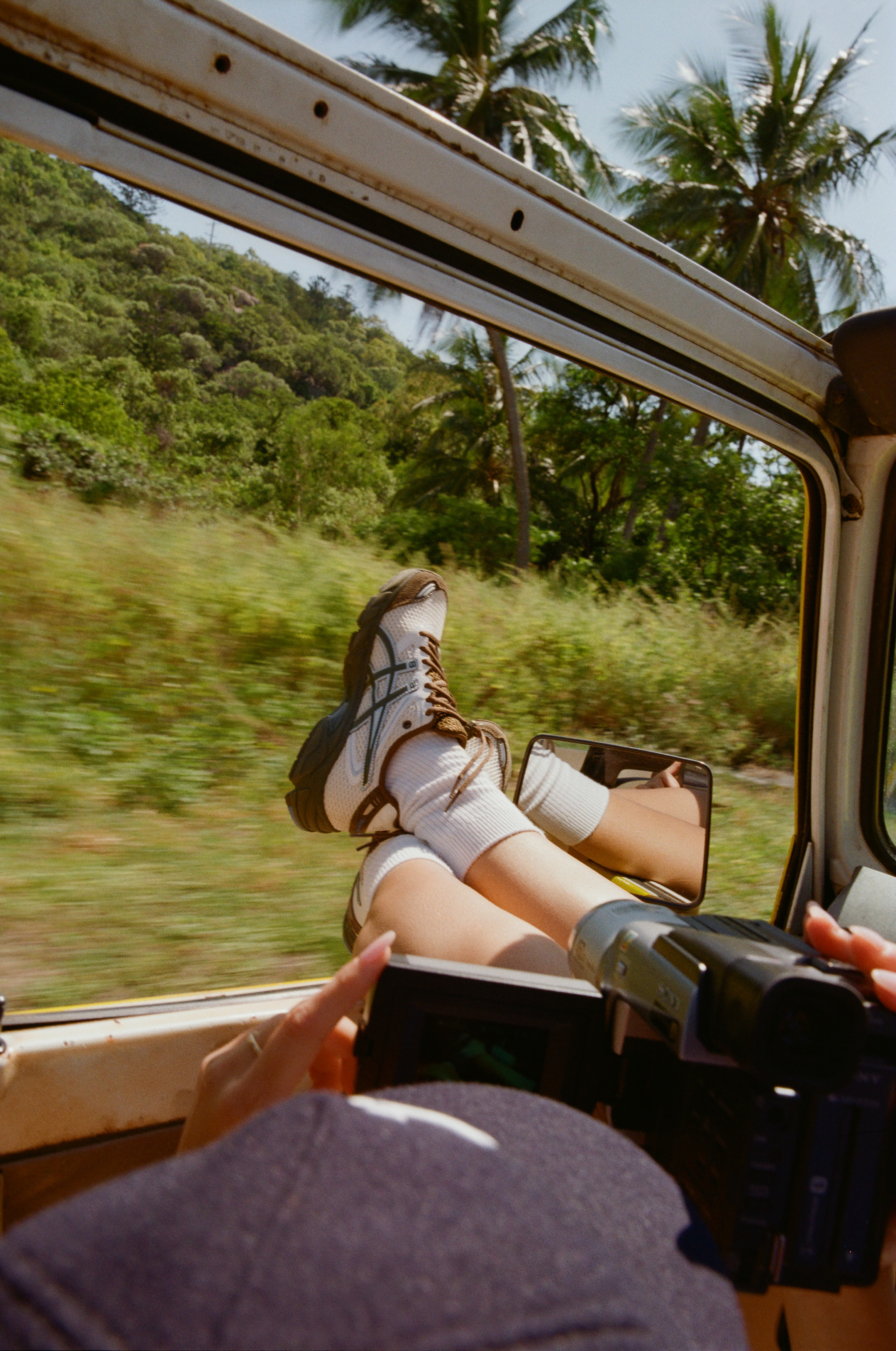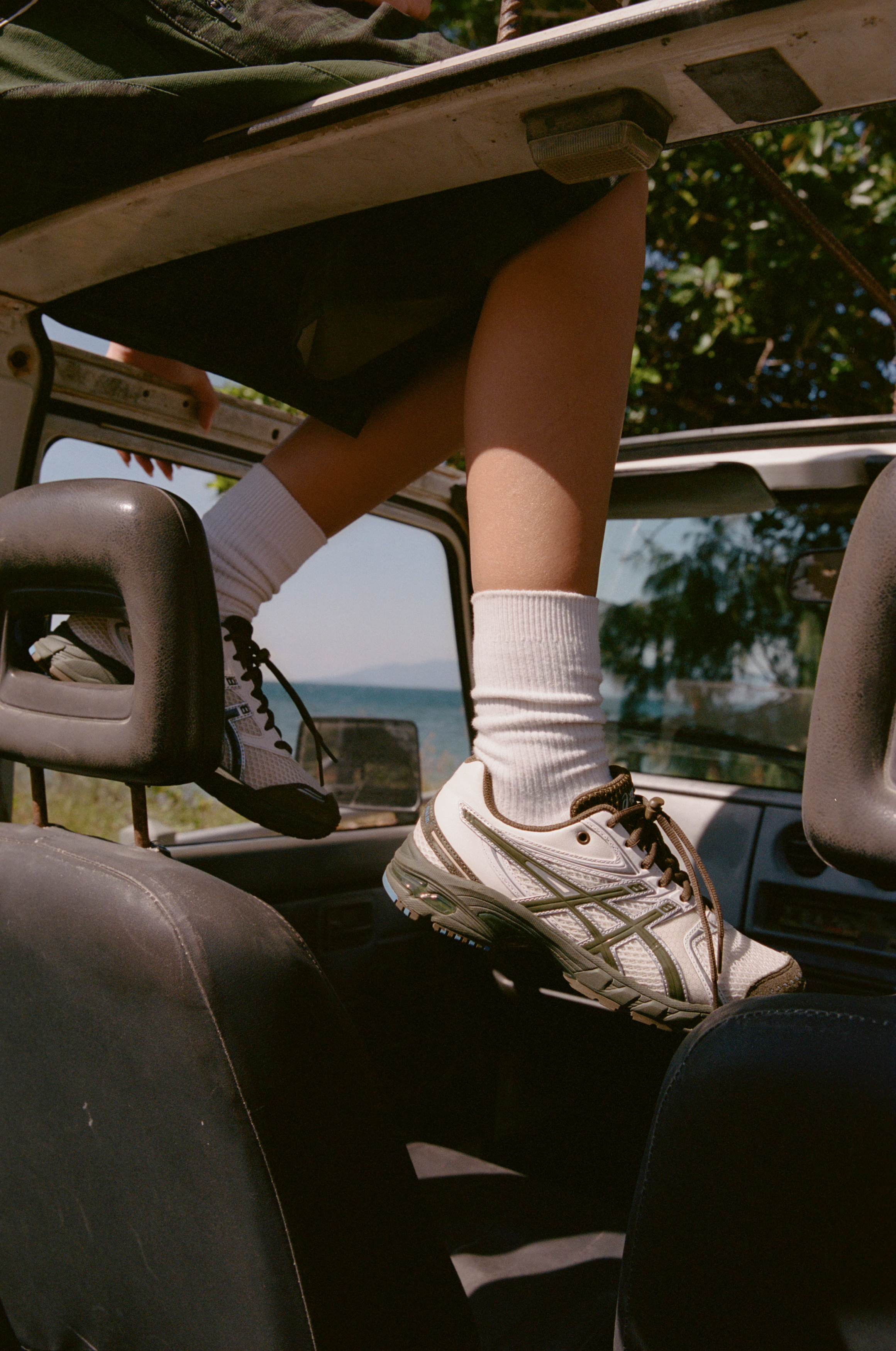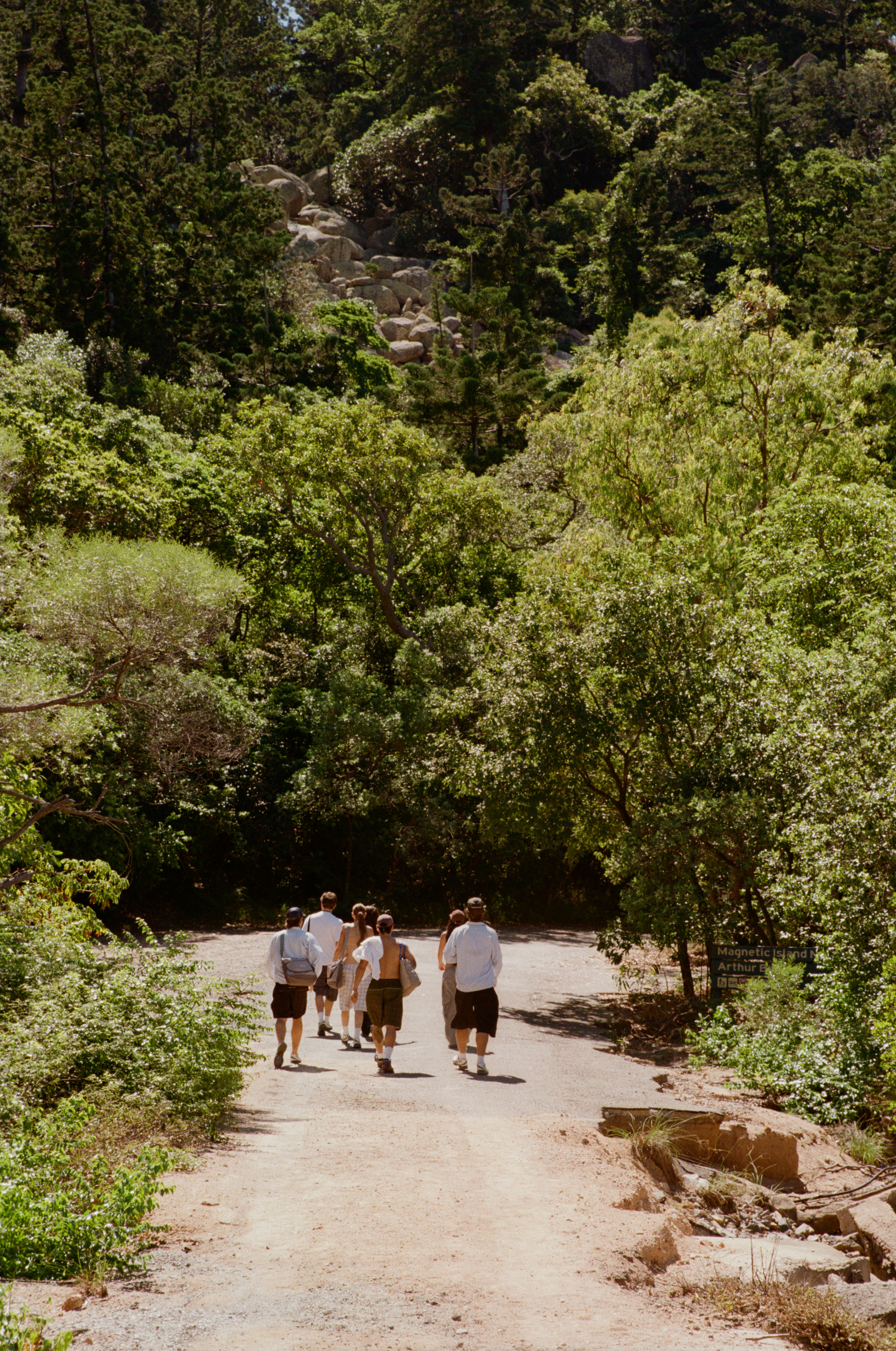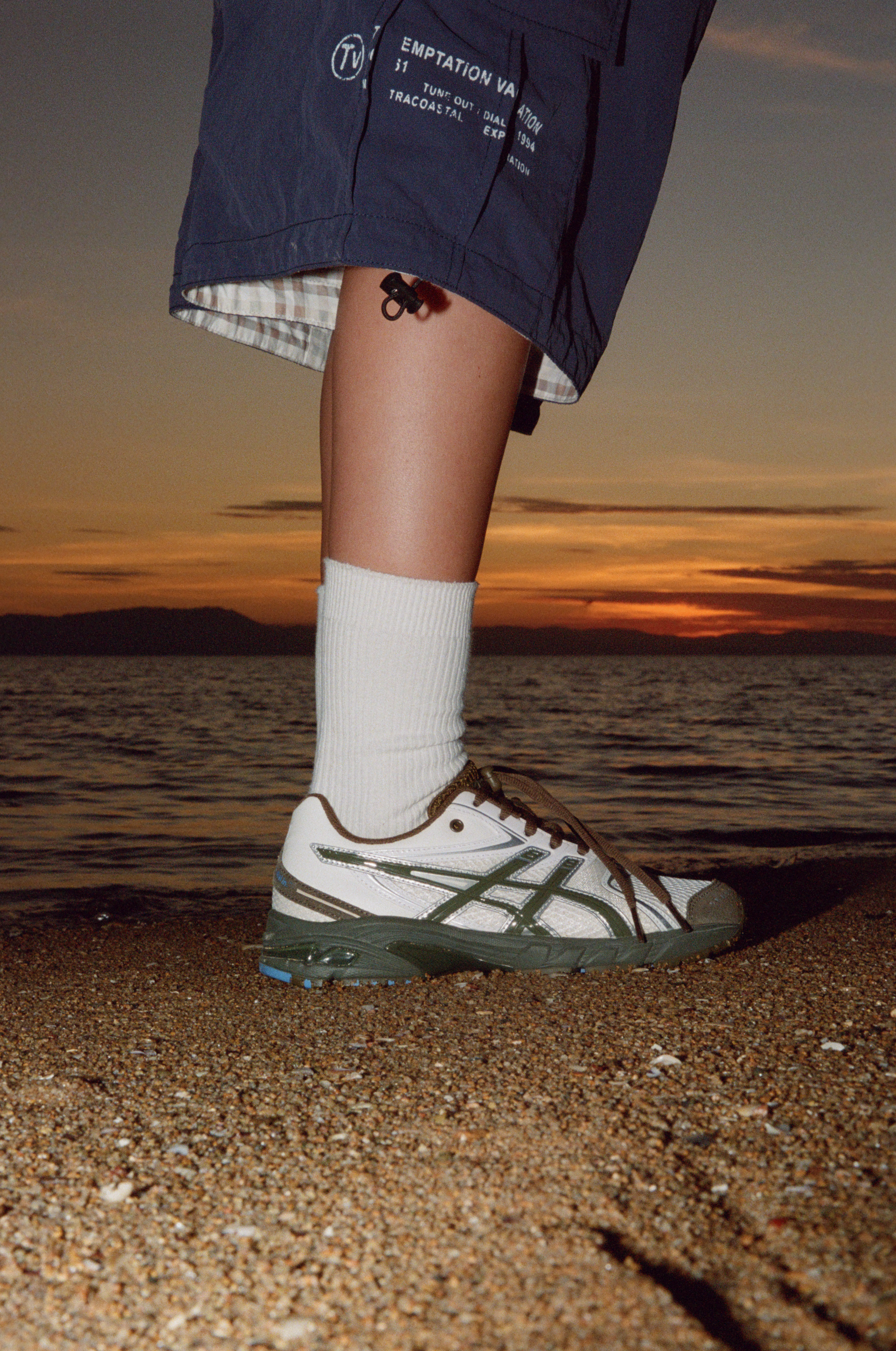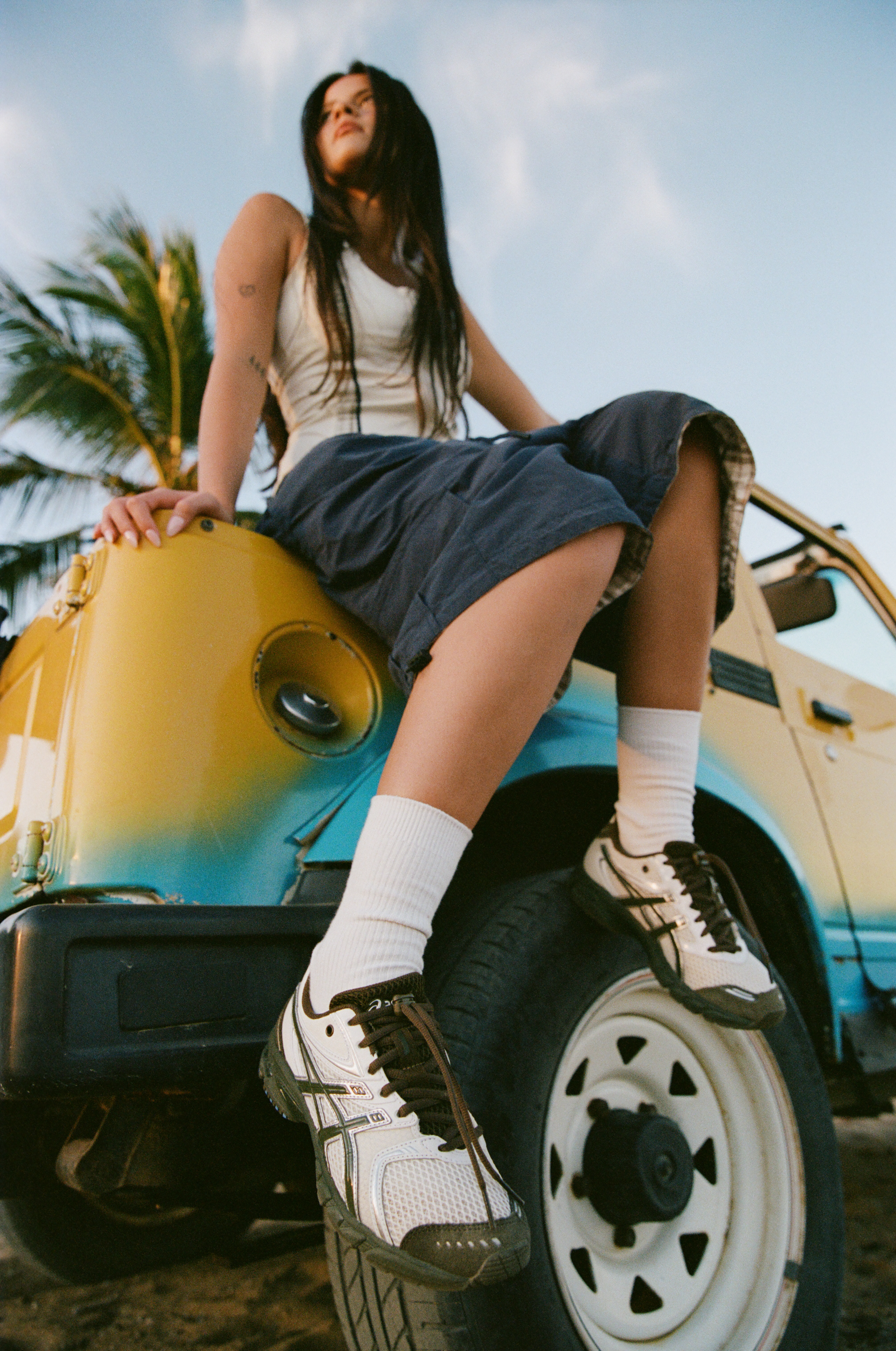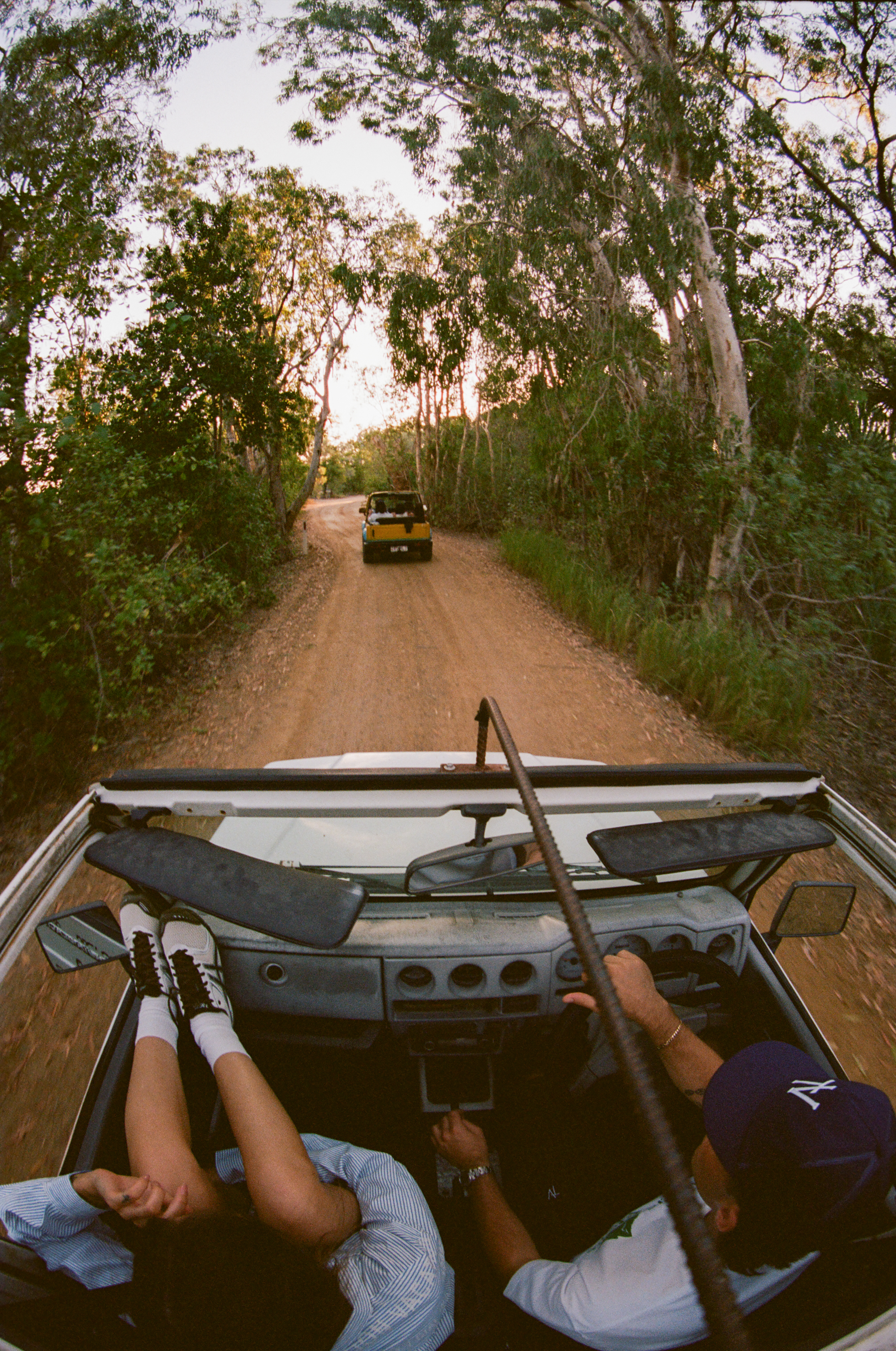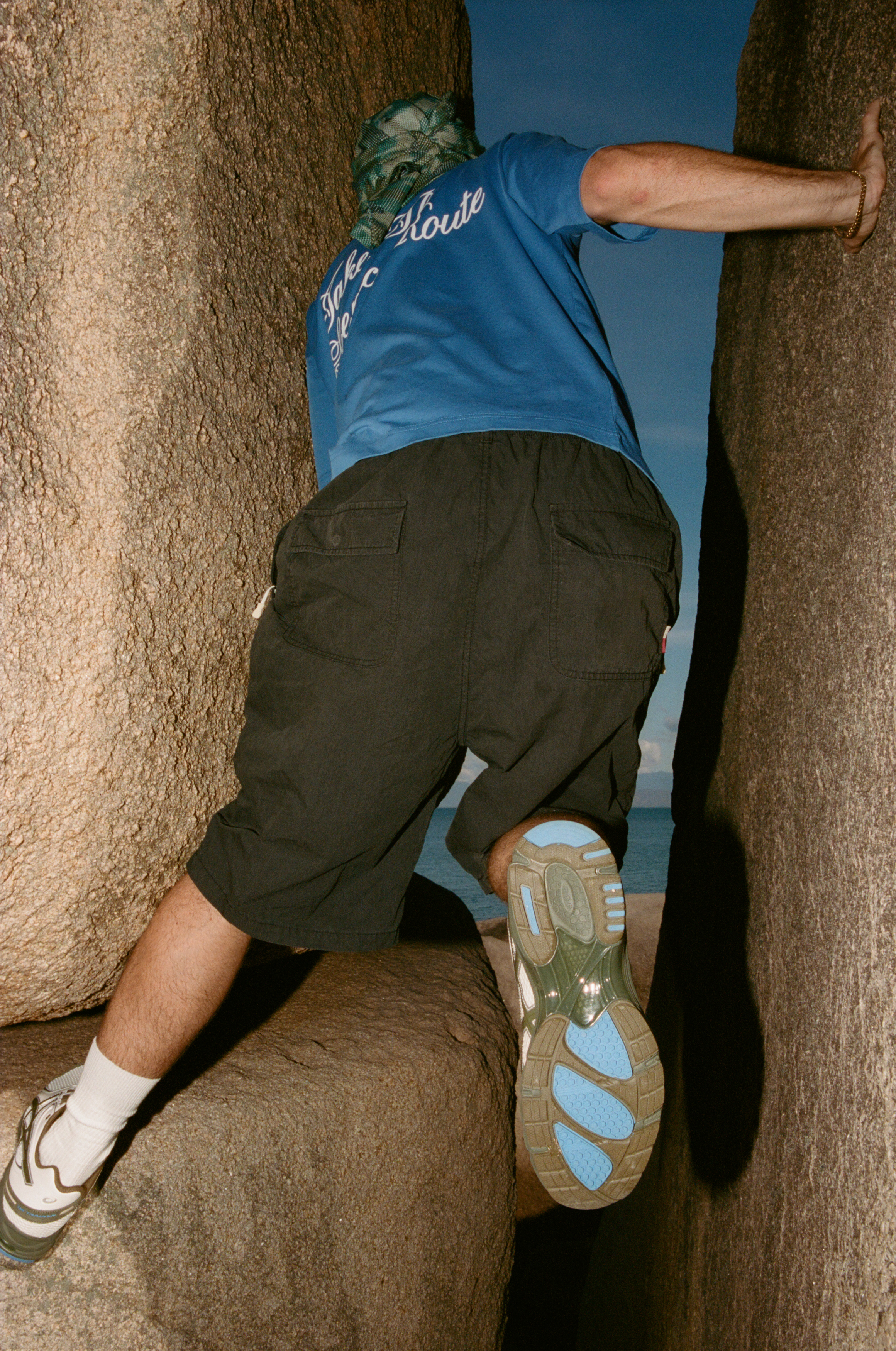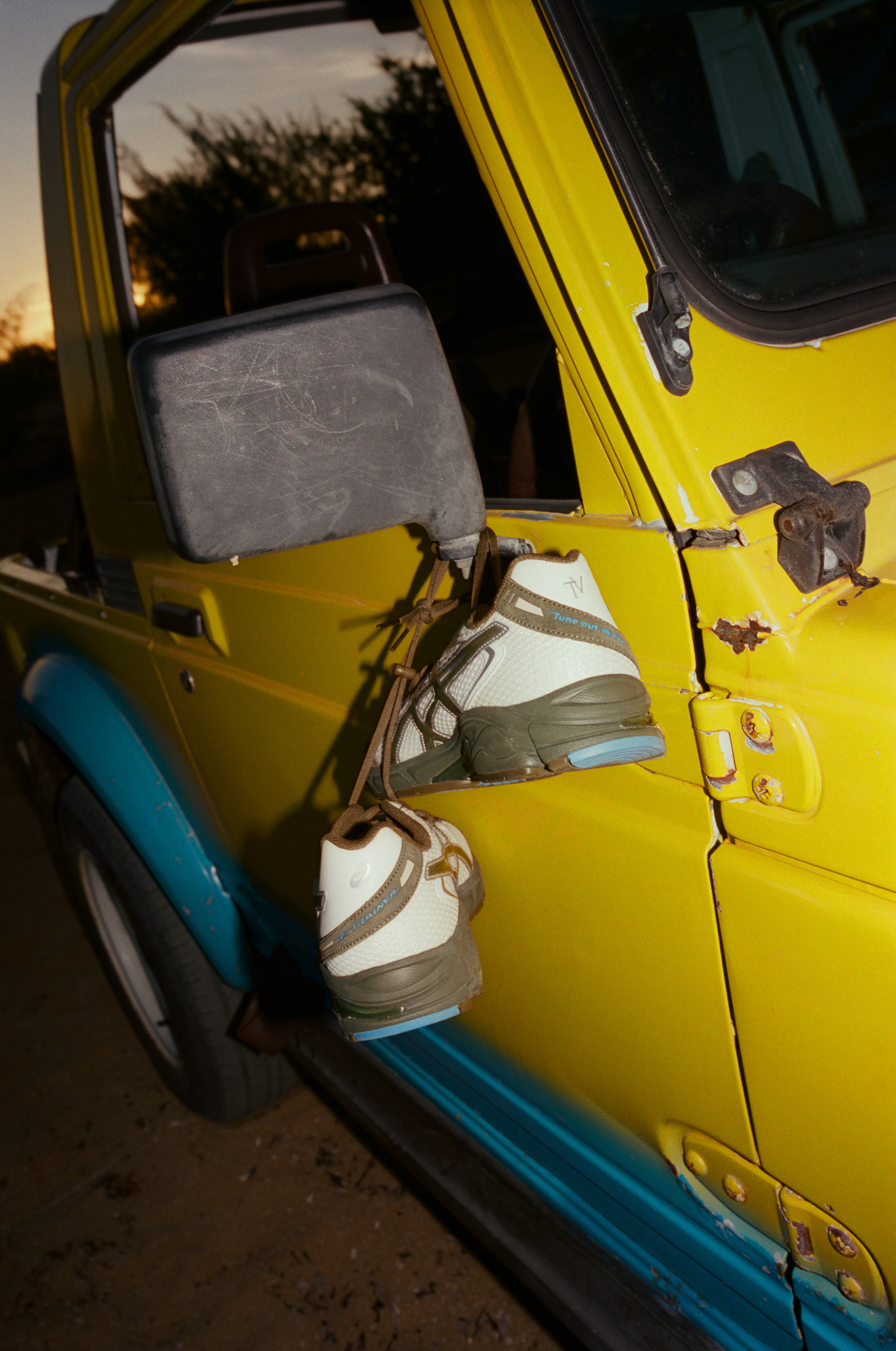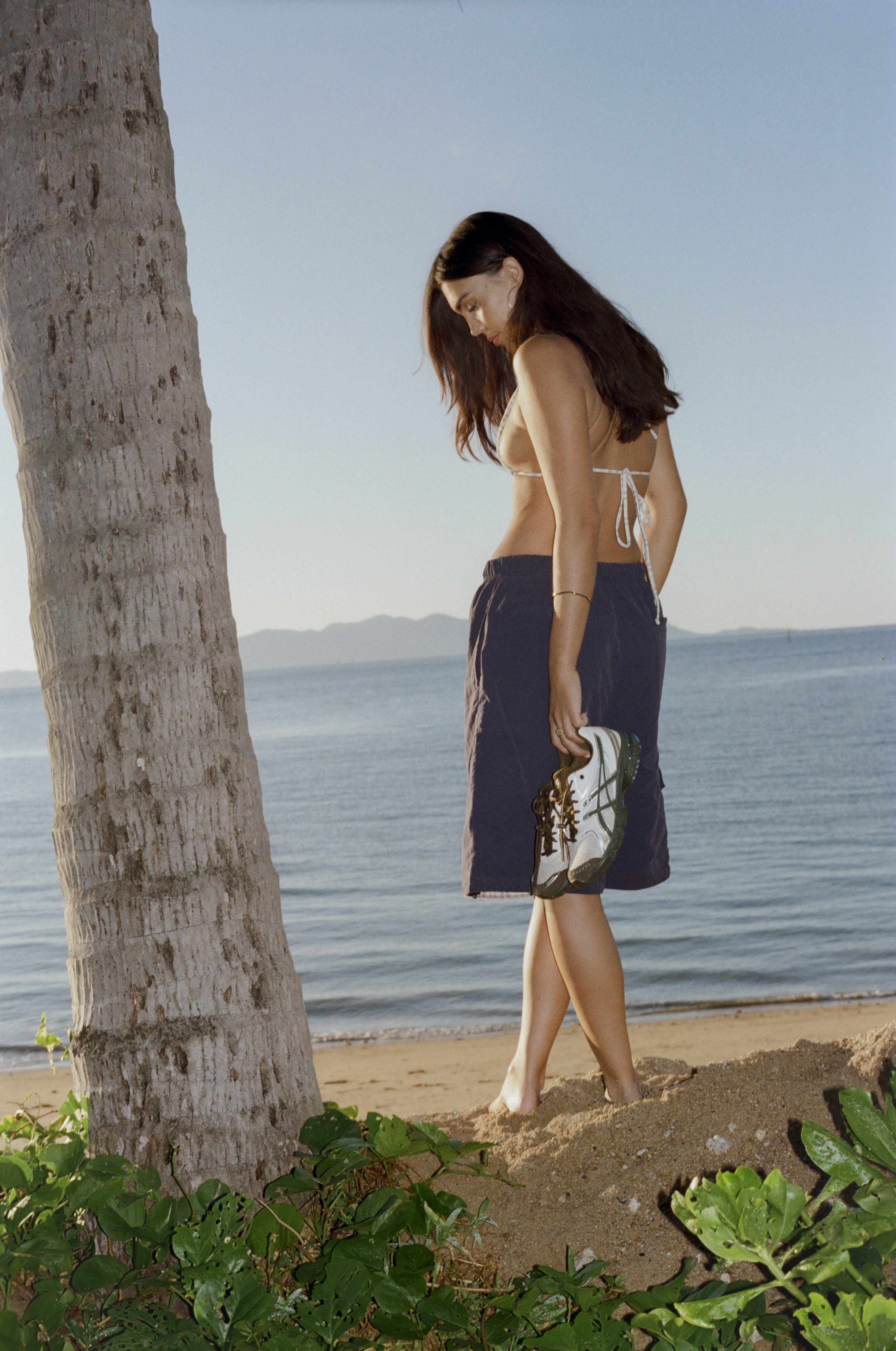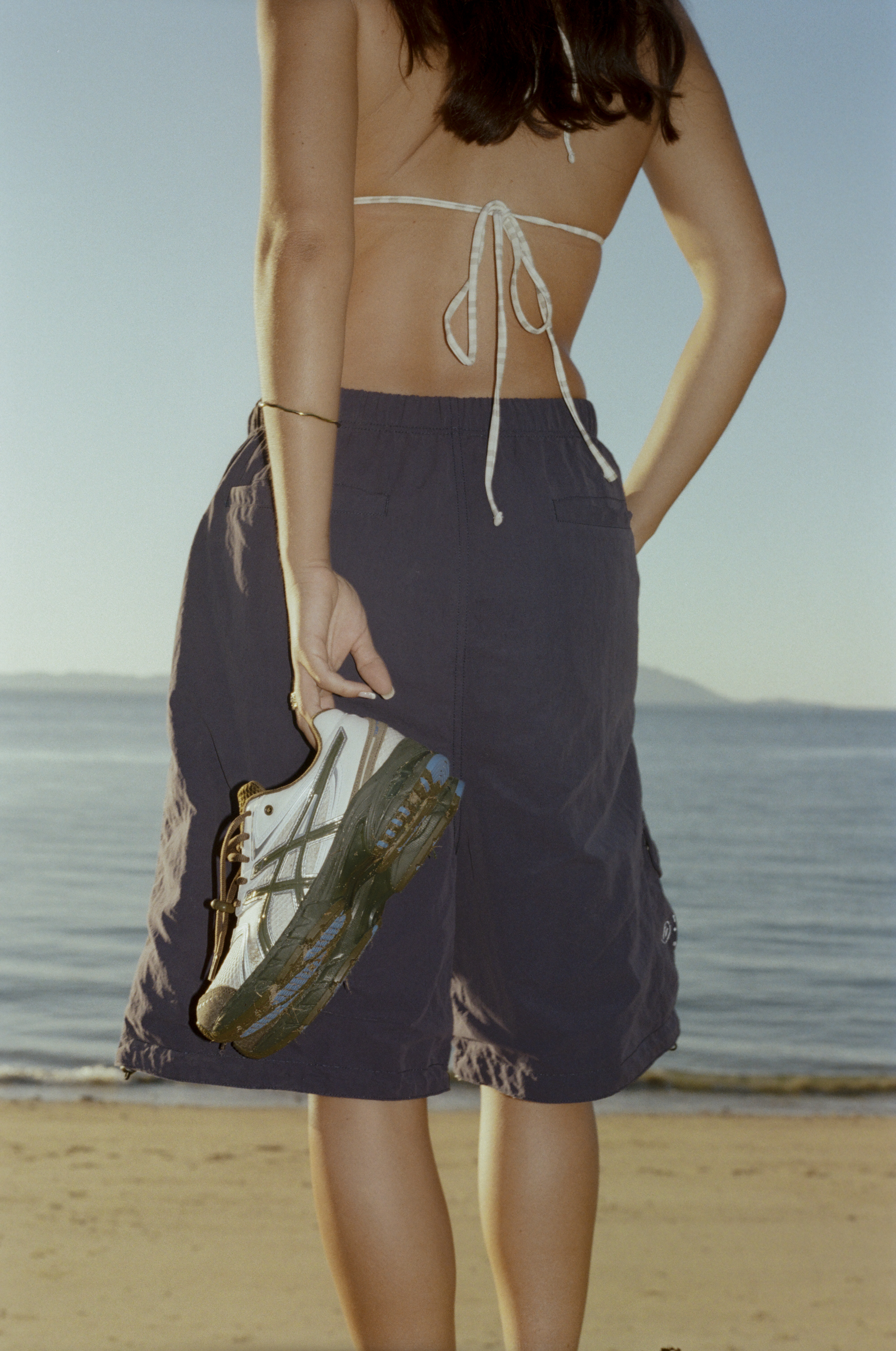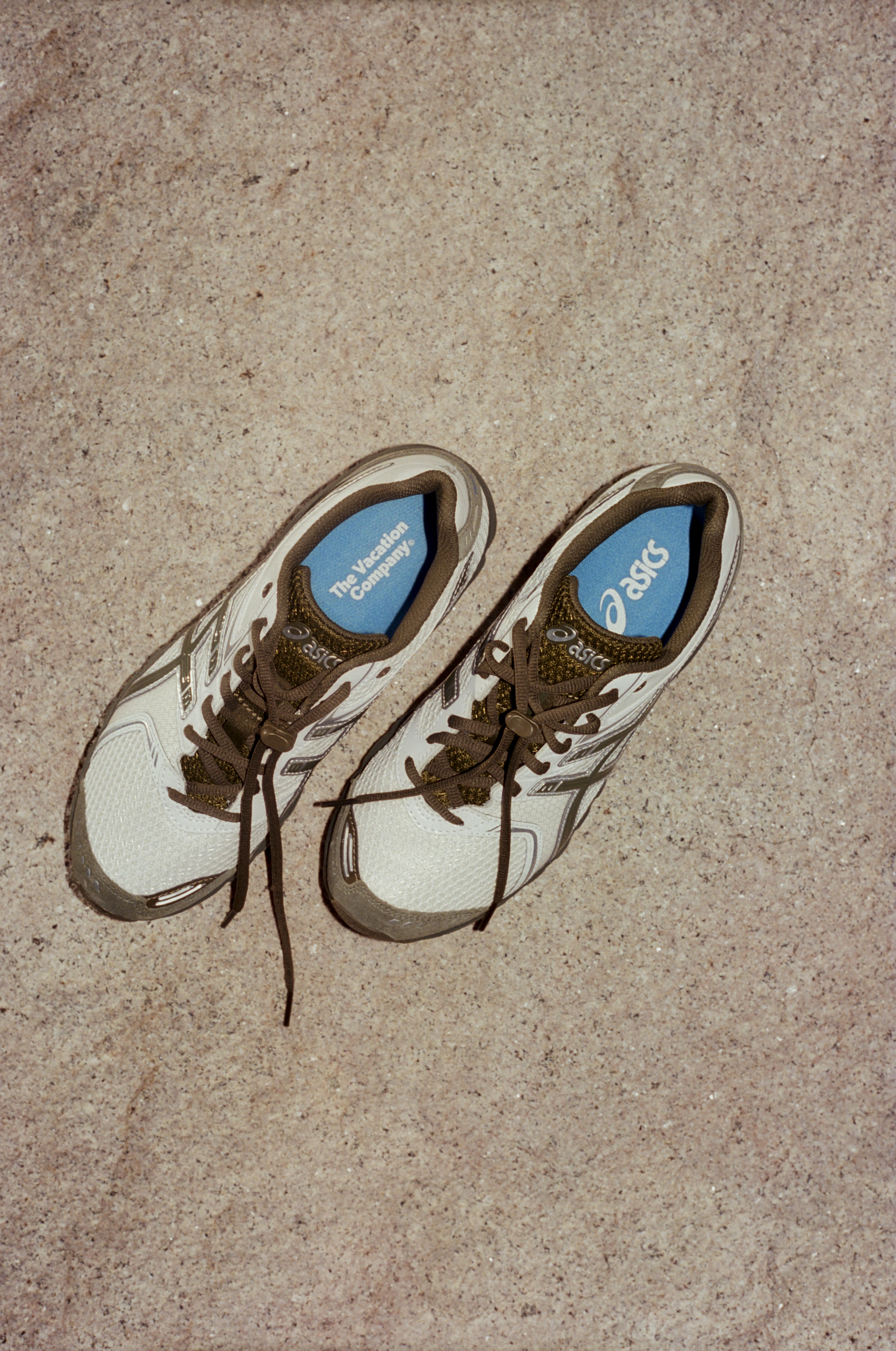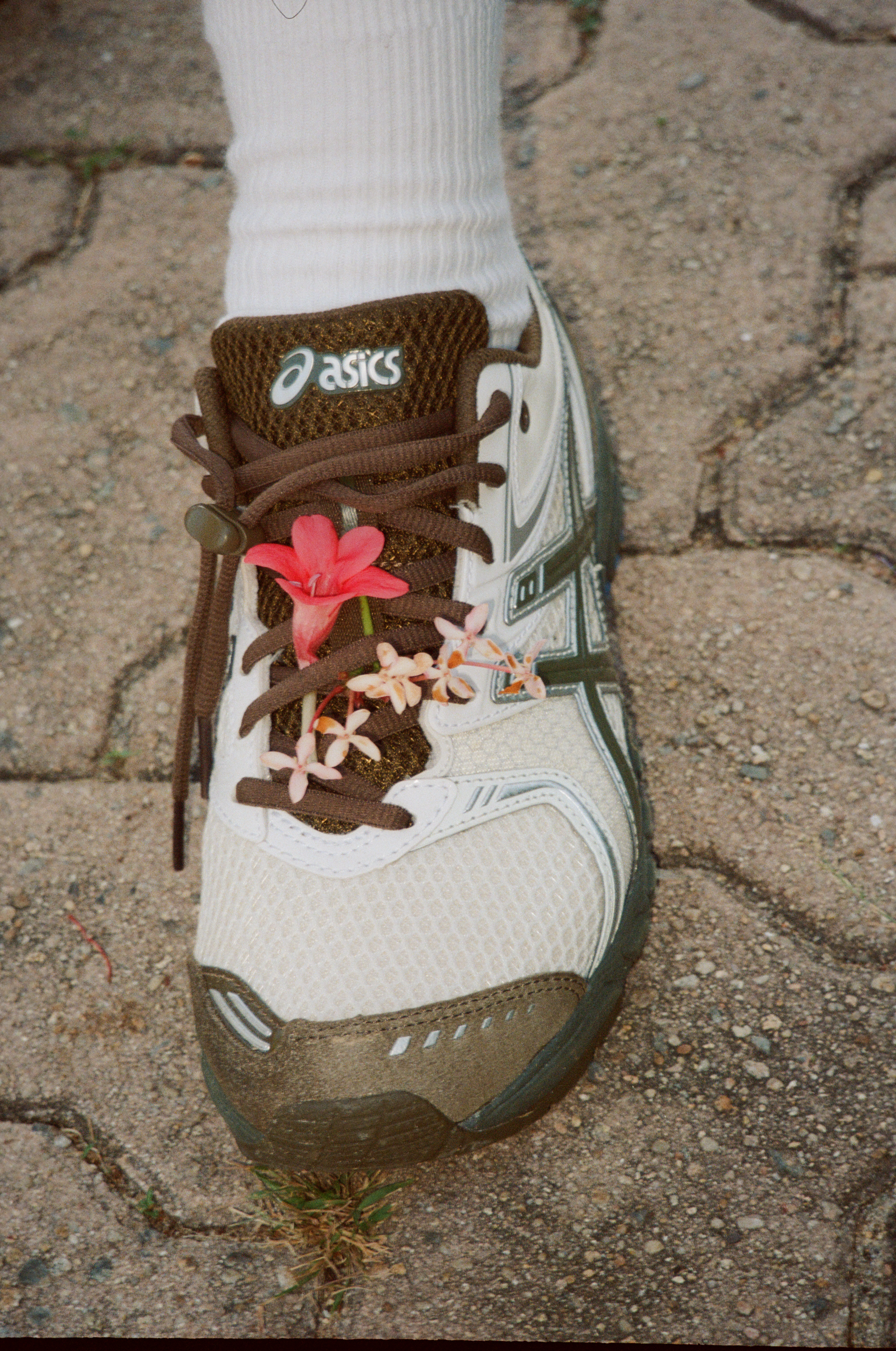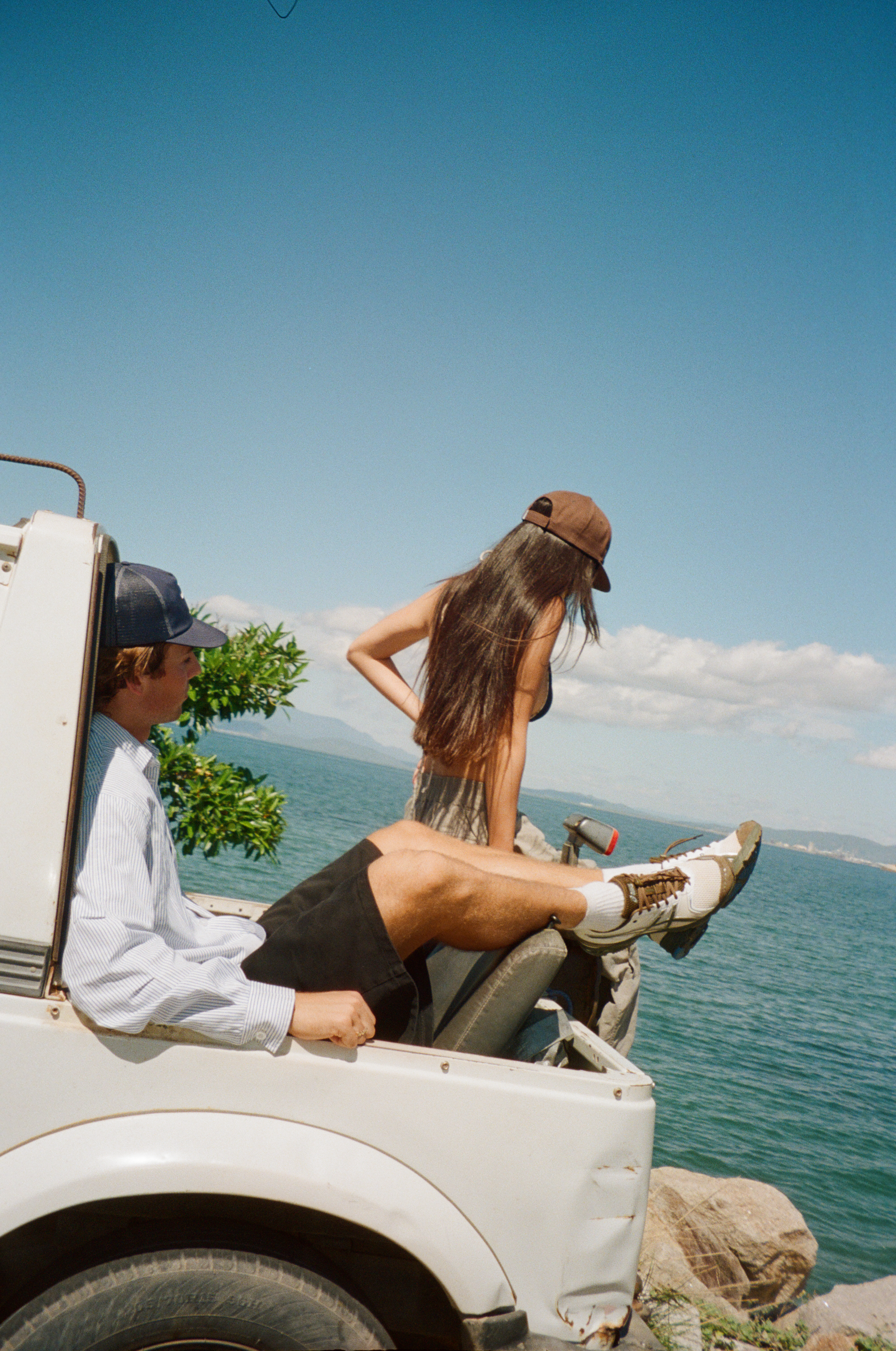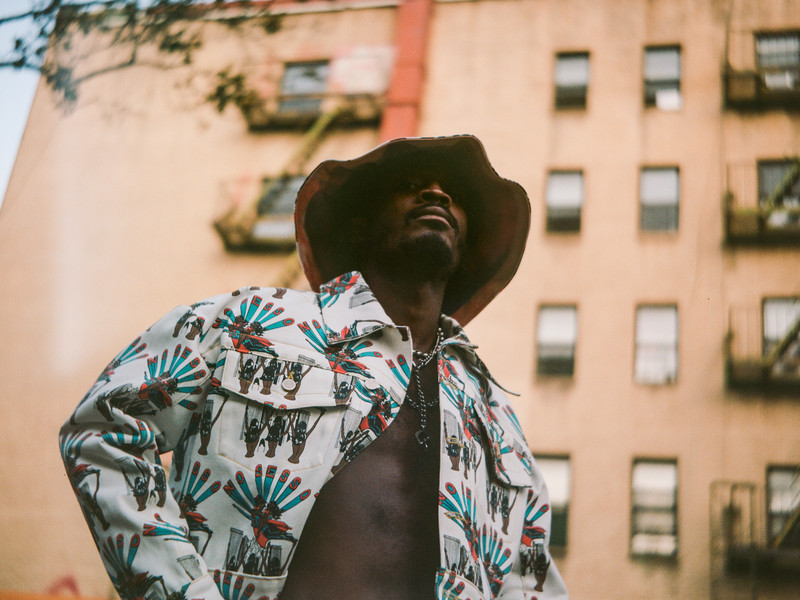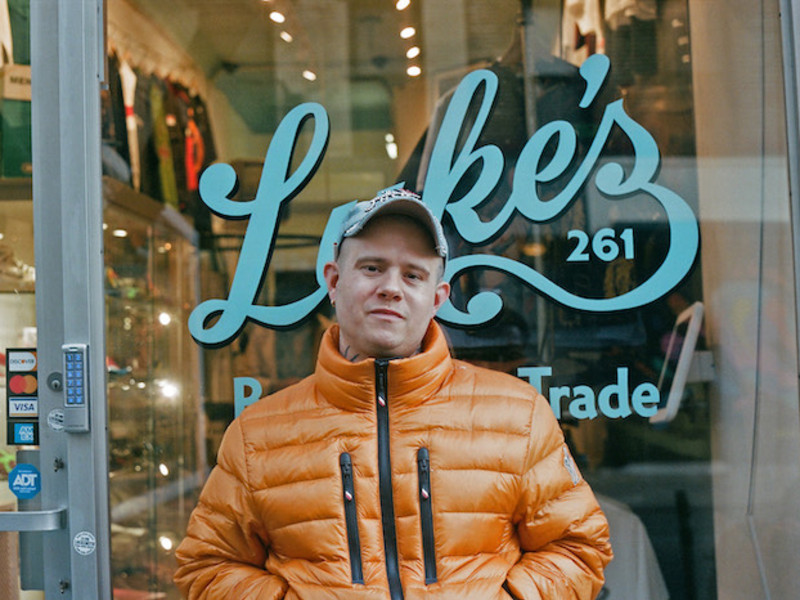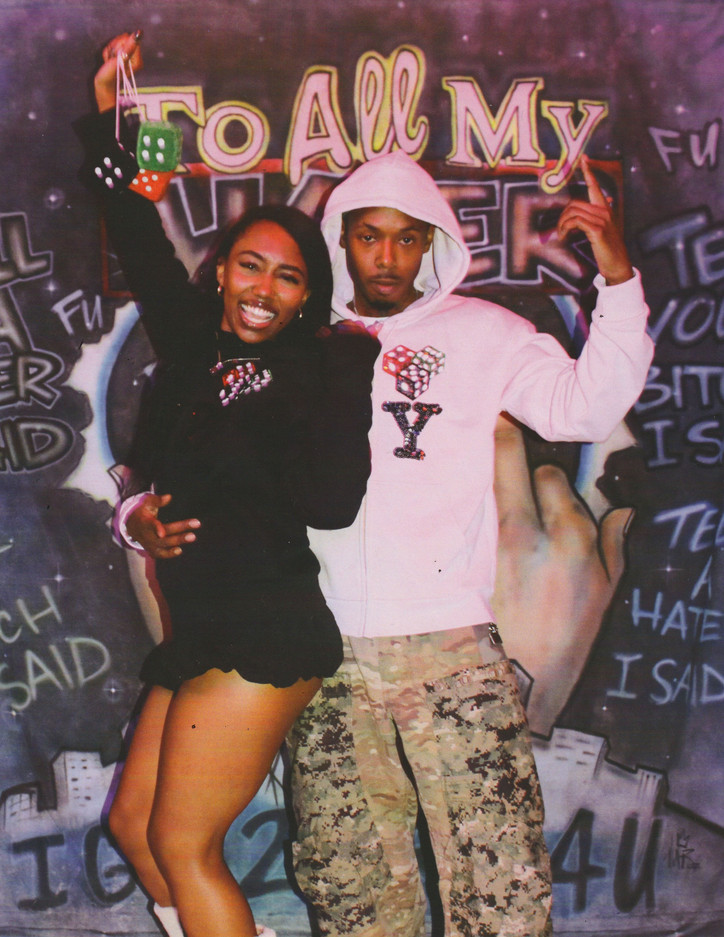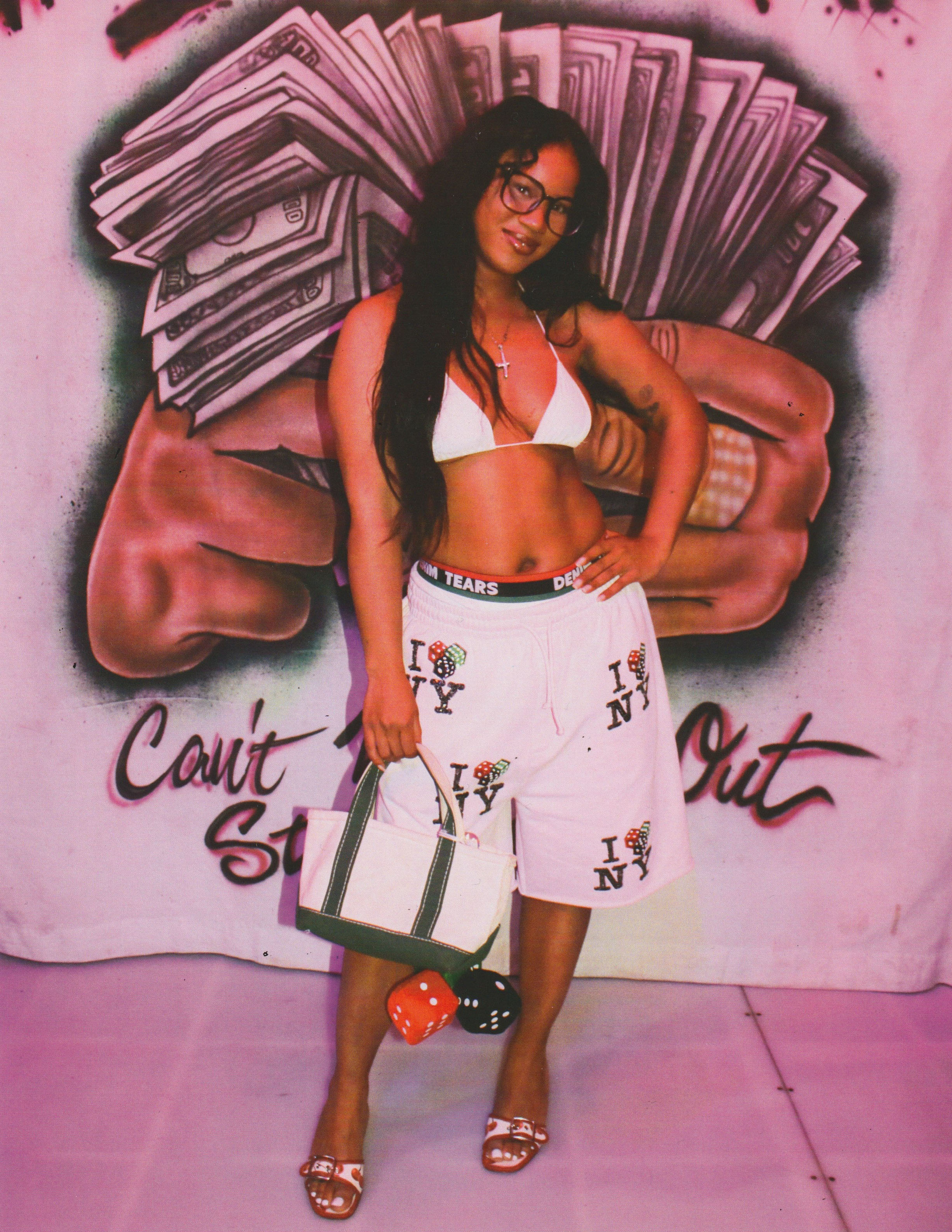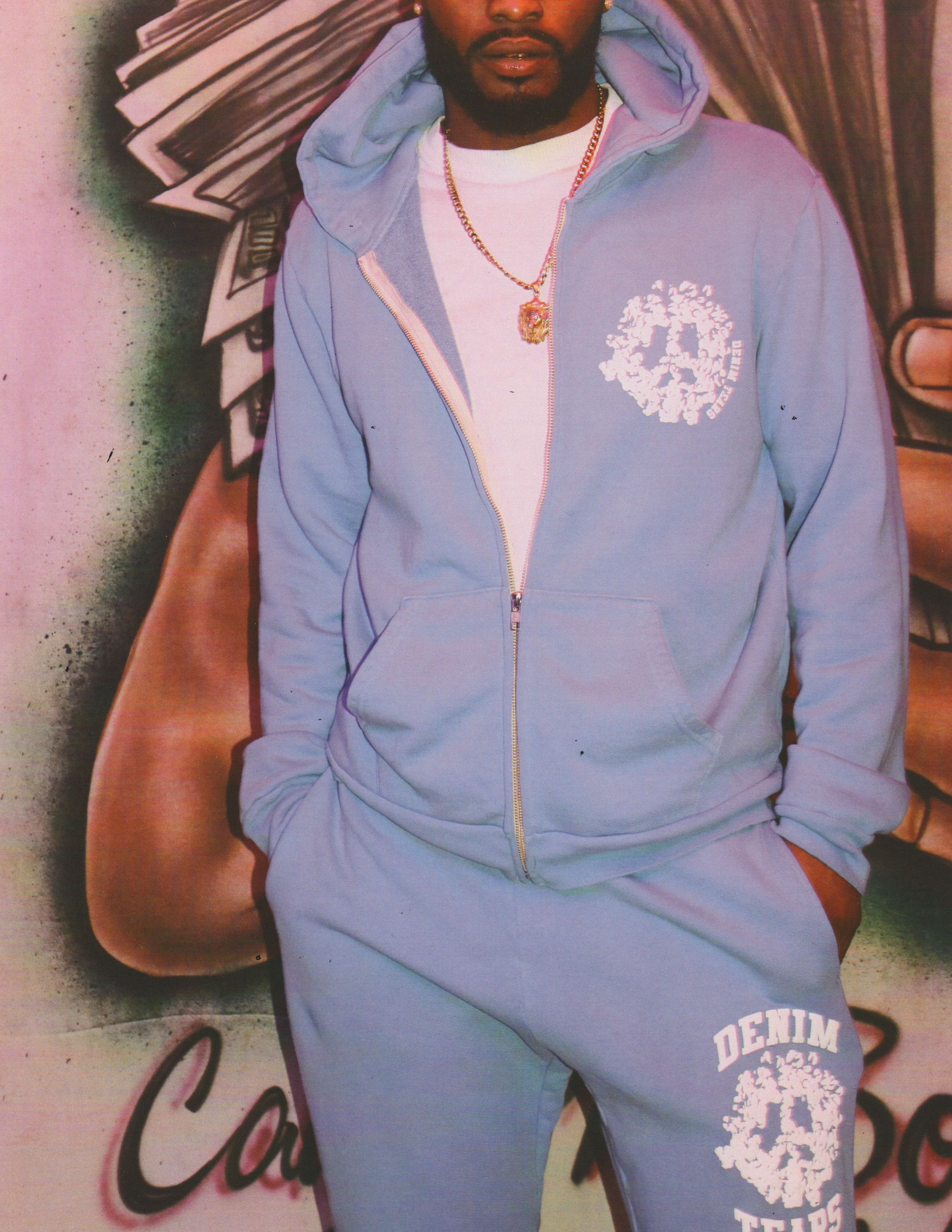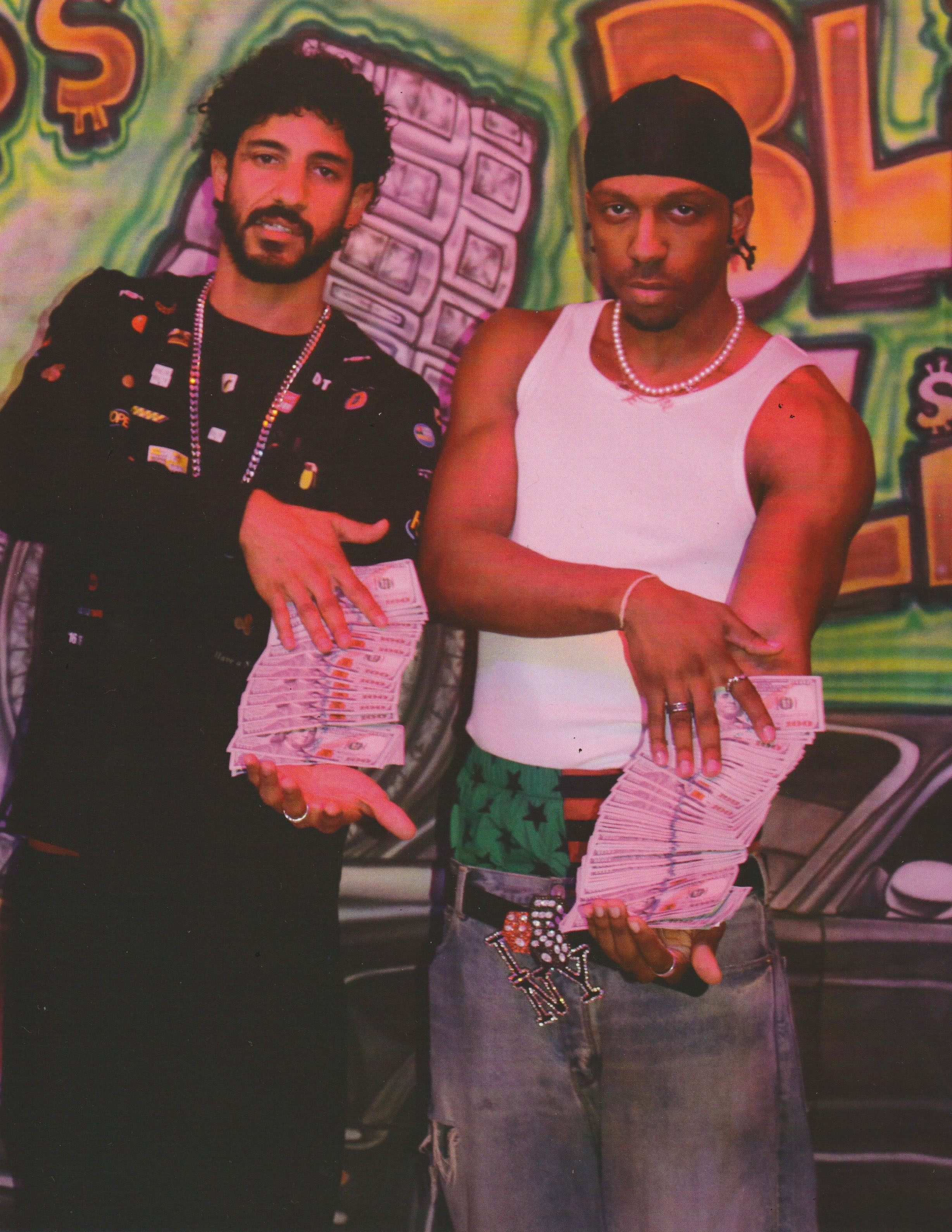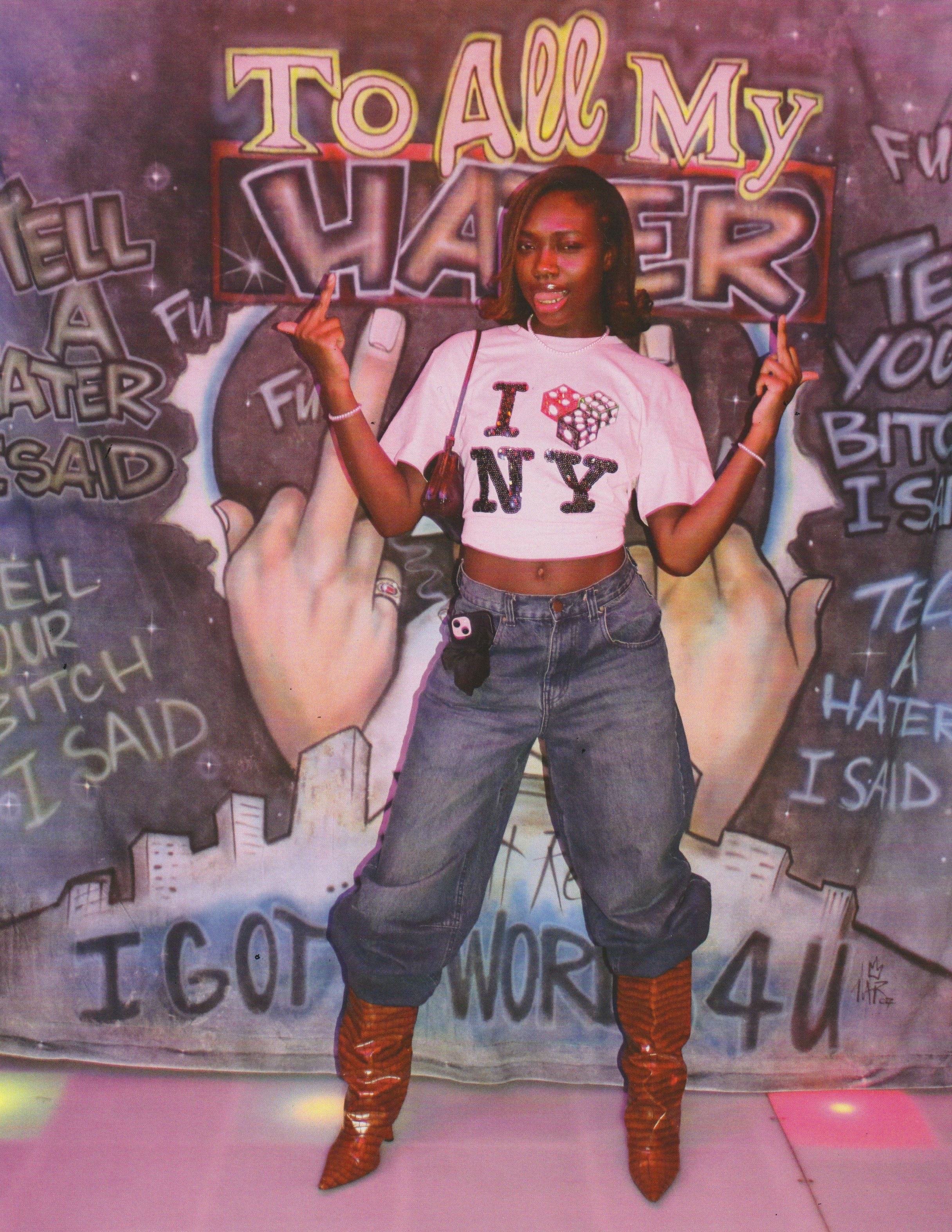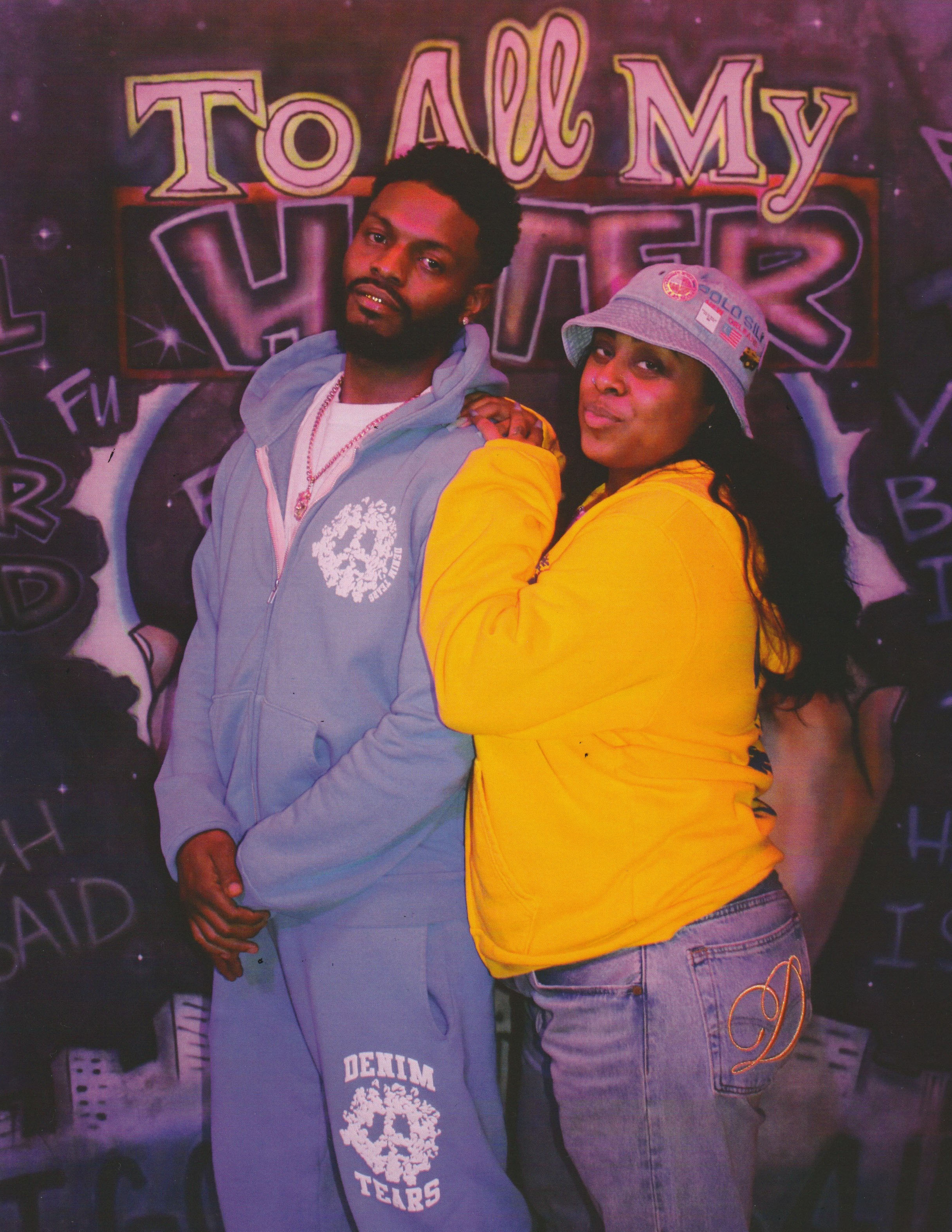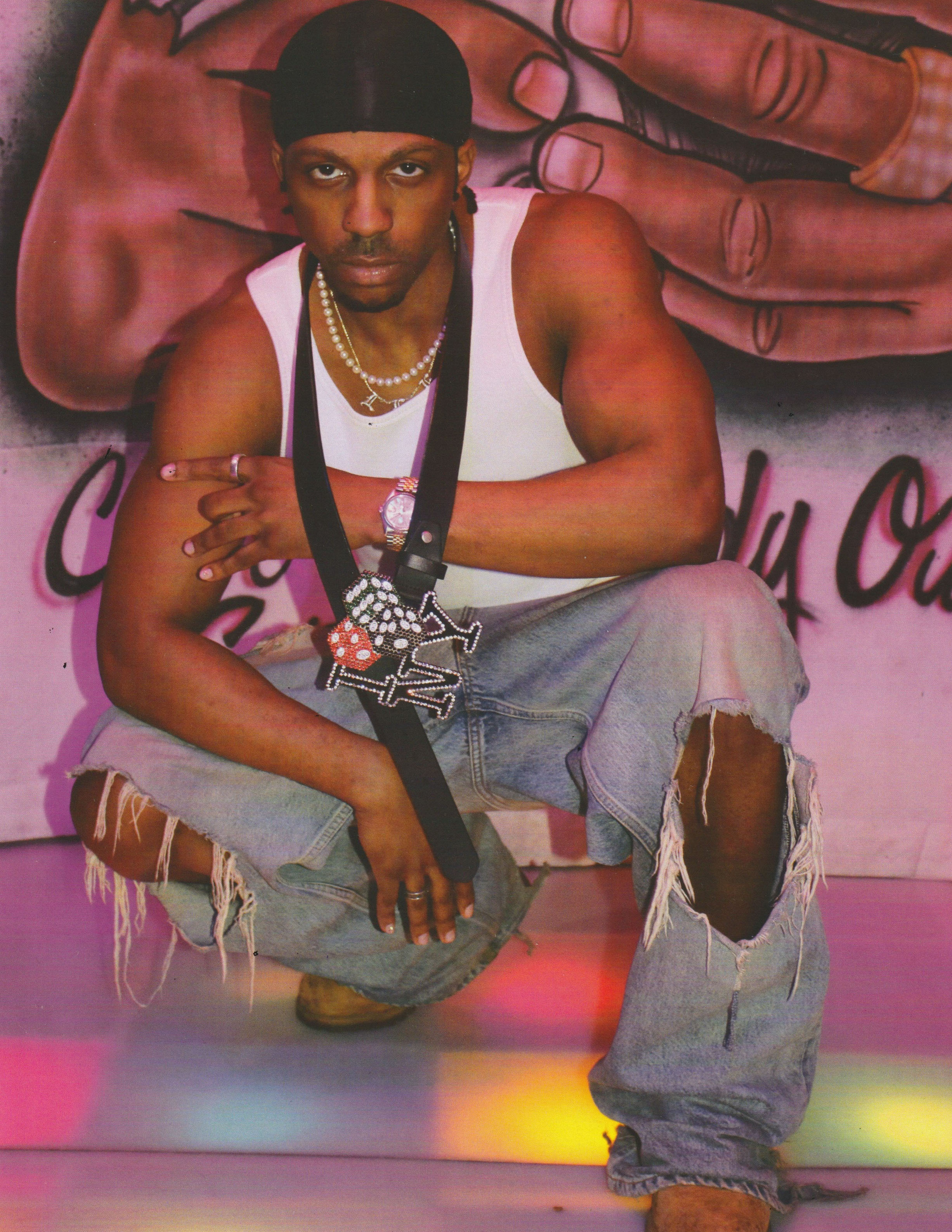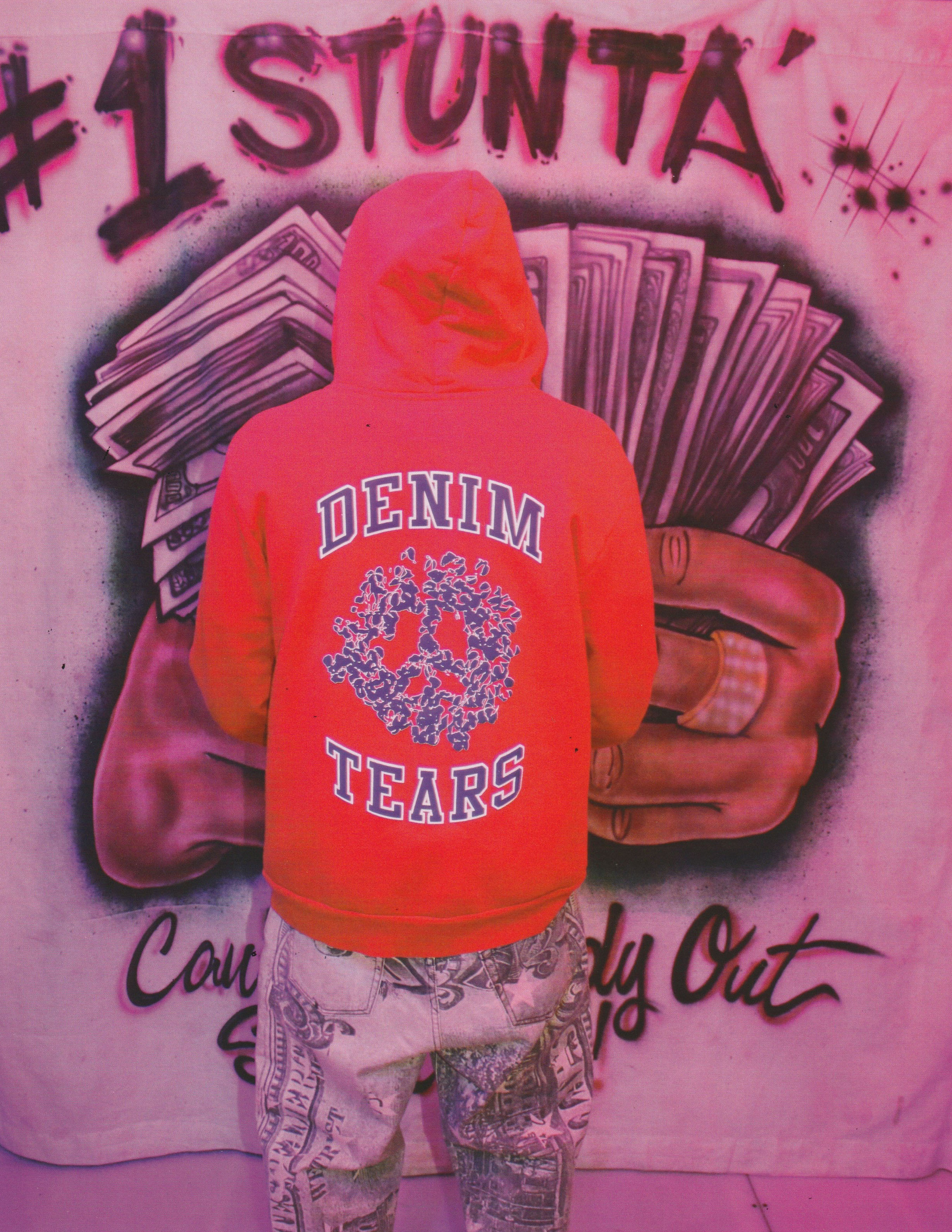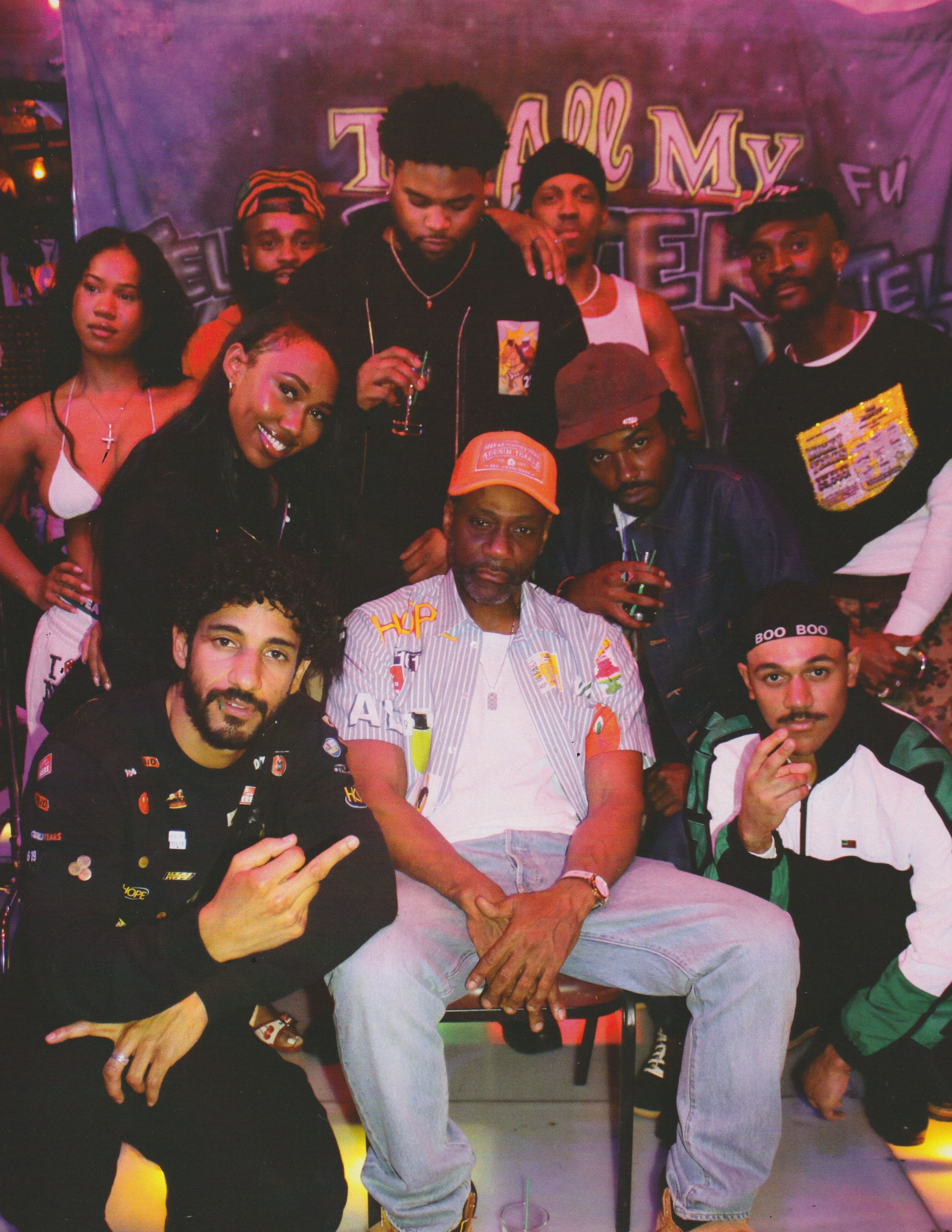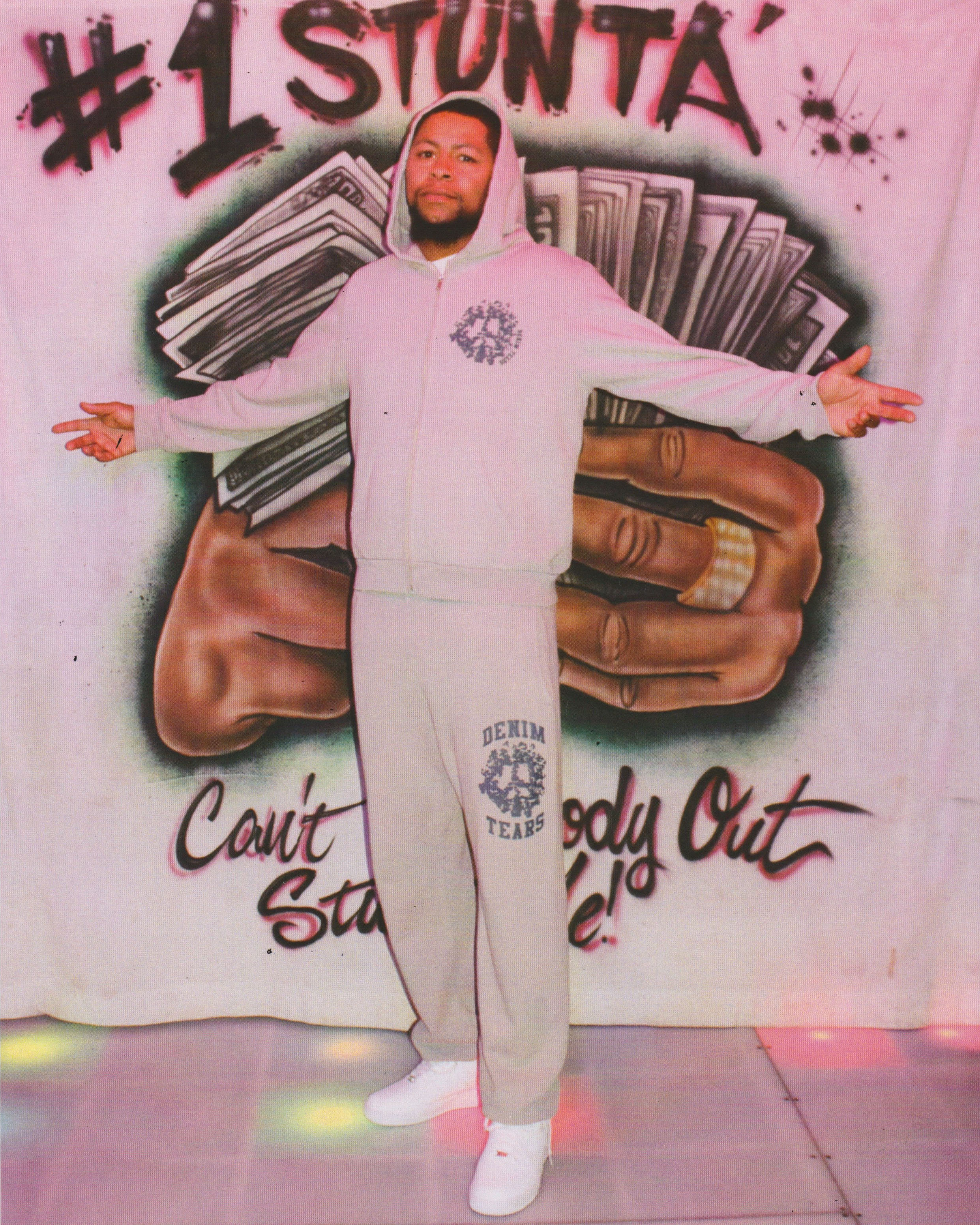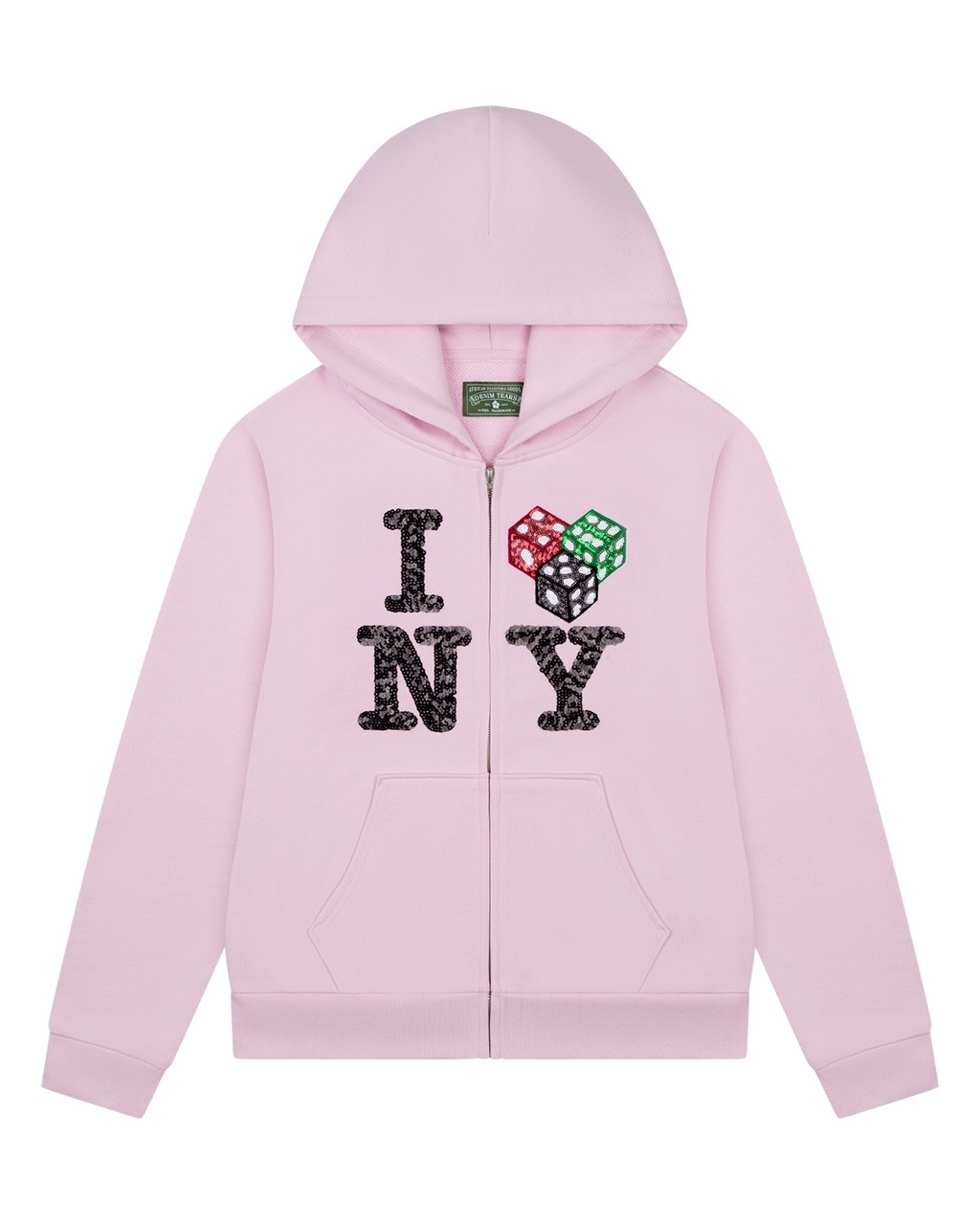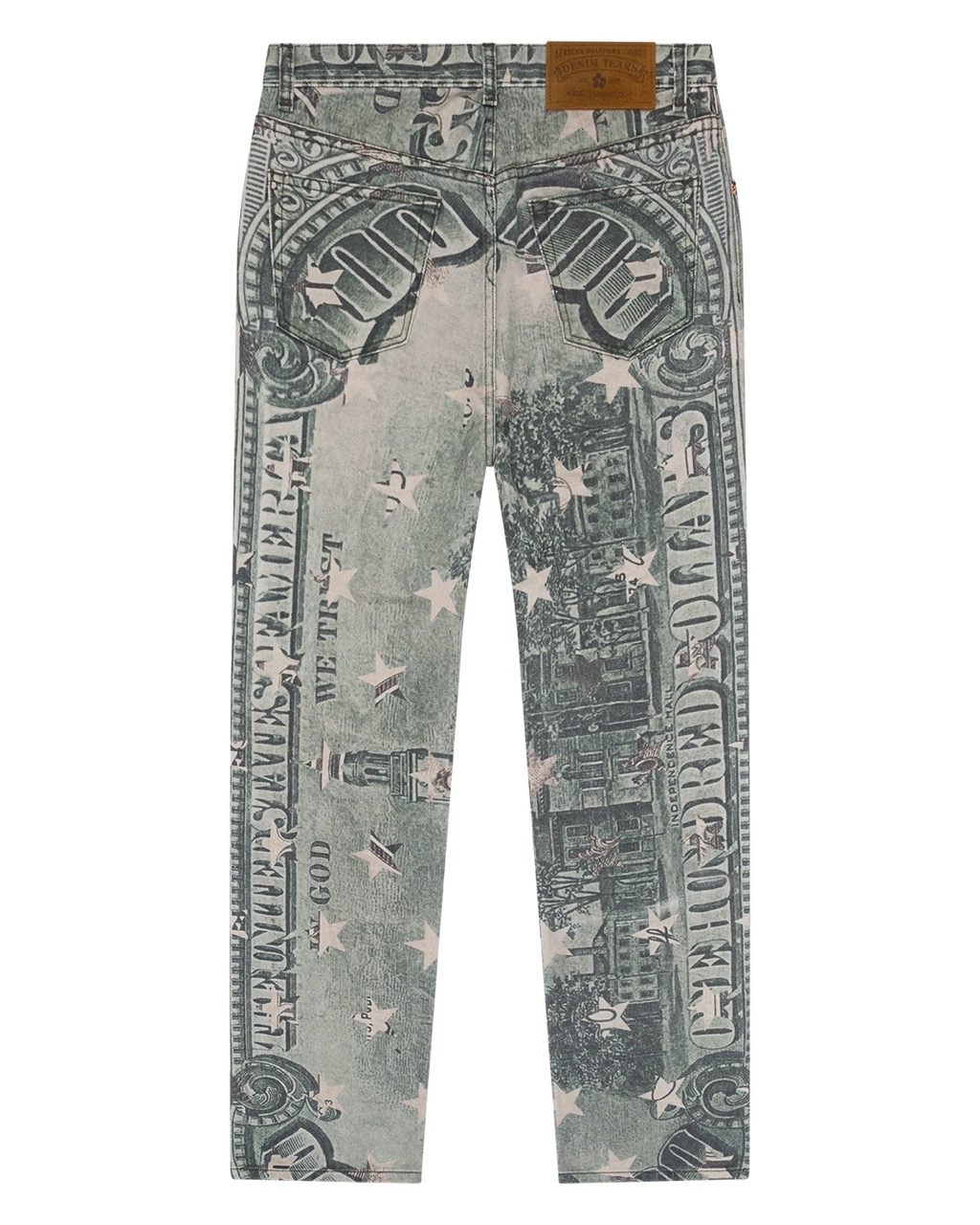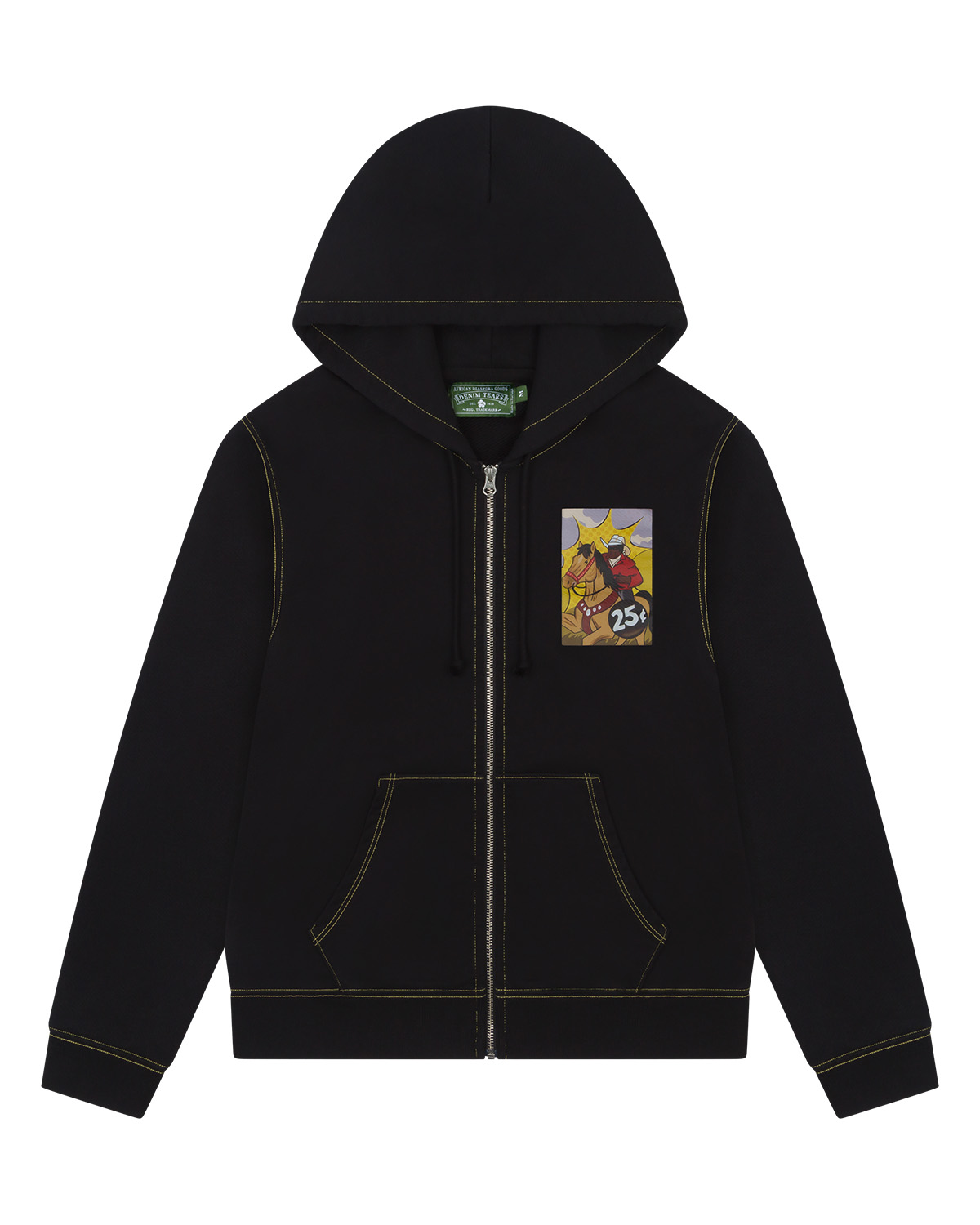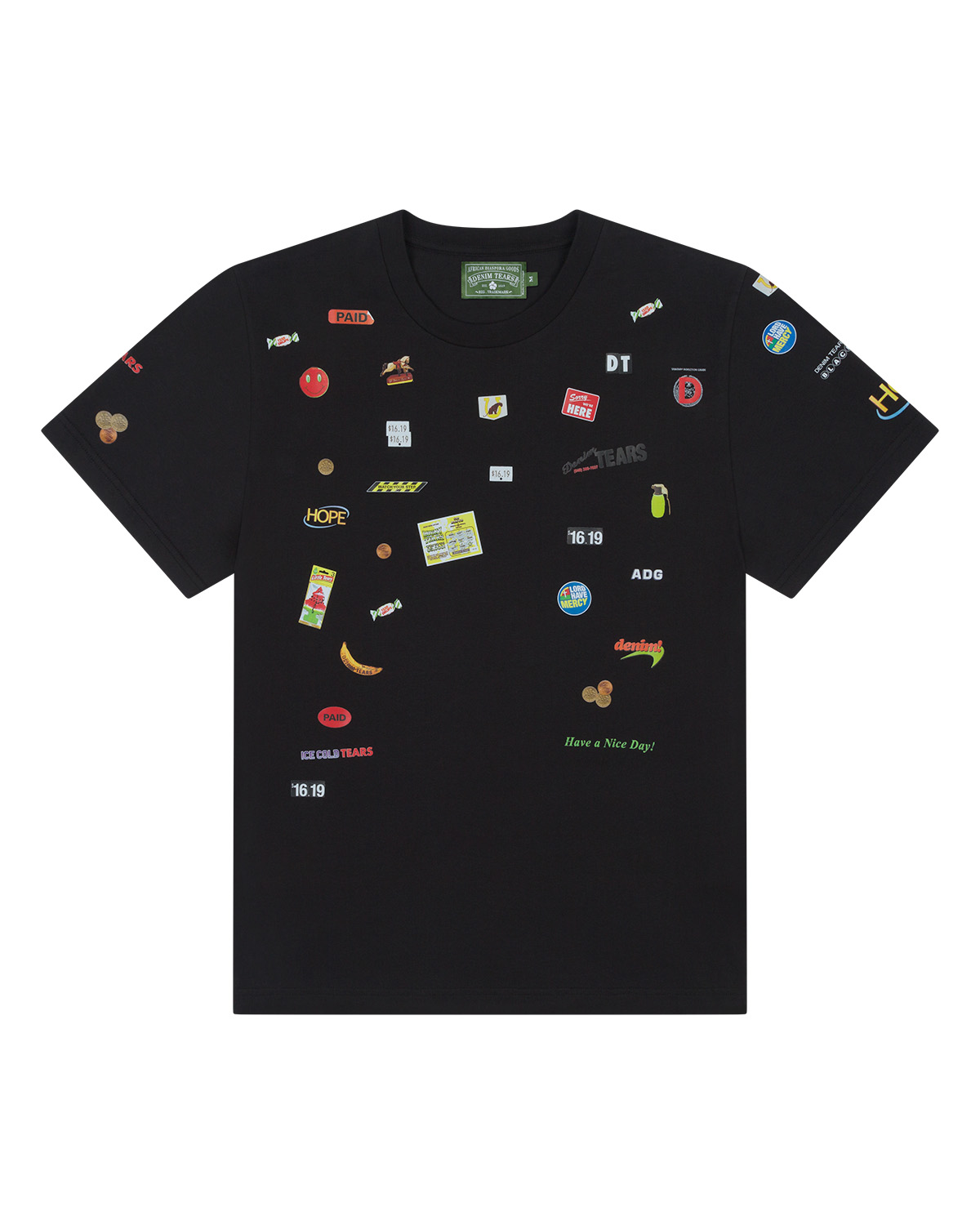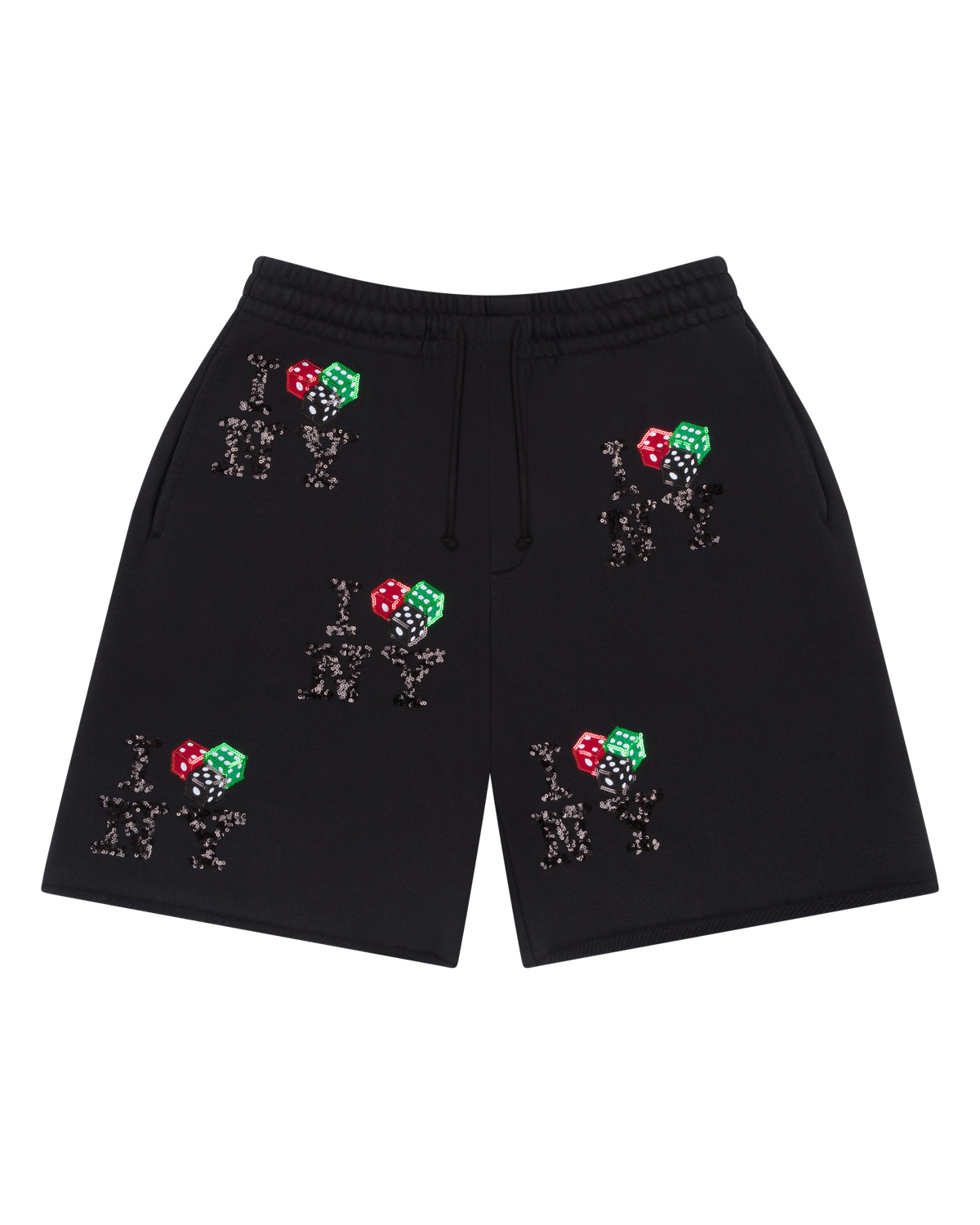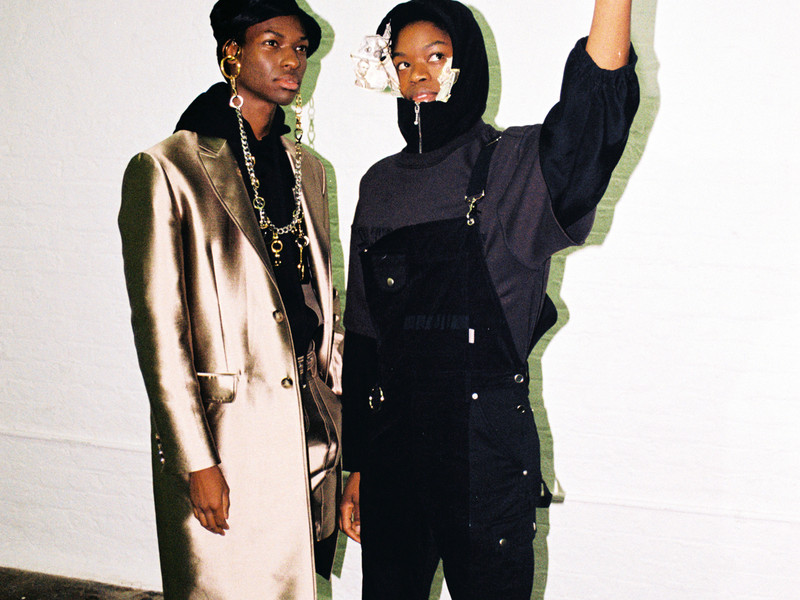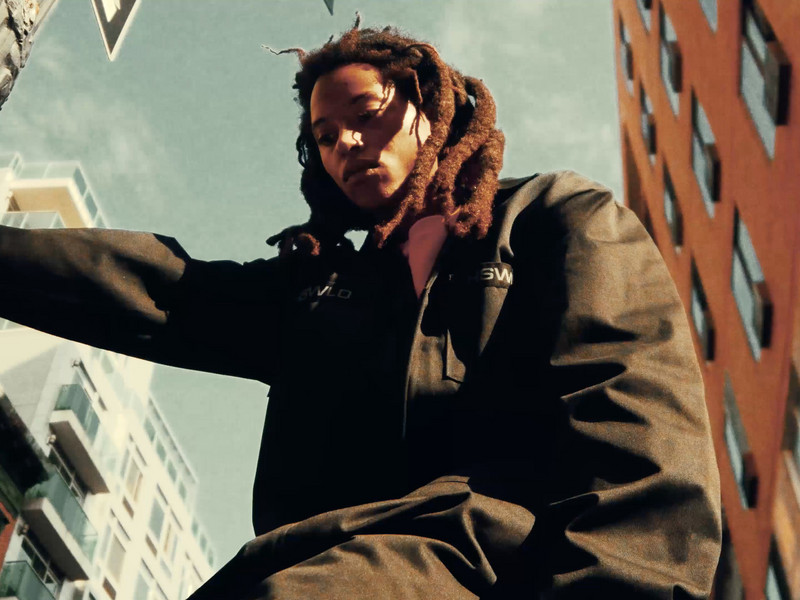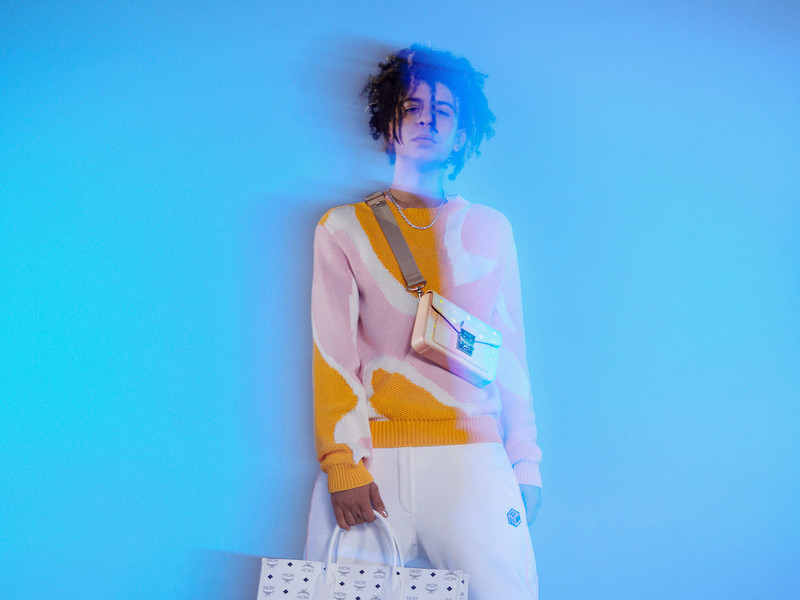A moment with bicoastal streetwear brand Rare Panther
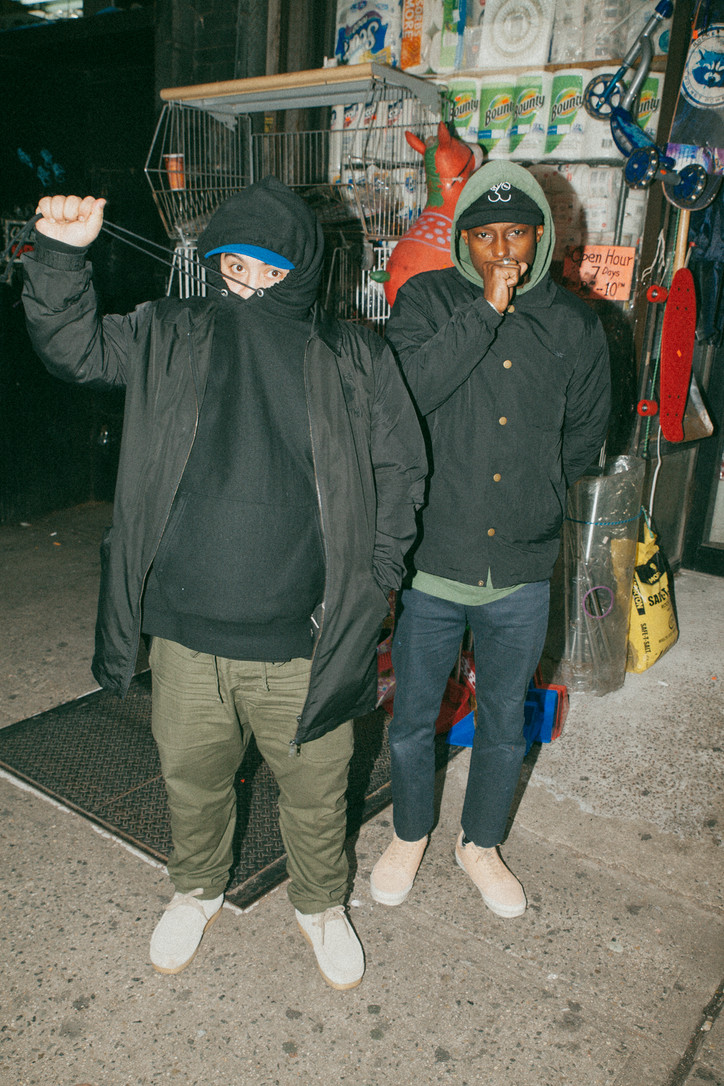
How did you guys come up with the brand?
Reggie:At the time I was working as Slvstr© a graphic illustrator/designer building my name and artistic voice that way. Shortly after releasing 3 shirts from this self-titled brand that Paulo was helped me put together I decided I didn't want to be a brand, I just wanted to be an artist. After taking a trip to visit my mother on the plane ride back home I was thinking about my family, Paulo and friends, and I was like, man maybe I should do a brand after all. Paulo is a genius at what he does and so am I so I
started to design and conceptualize while on this flight home.
People had gotten familiar with my work and what it consisted of: panther character, thunderbolts, and the hue Slvstr© Blue. Me being from Oakland, the panther has always resonated with me, especially after learning about the Black Panthers and how they started in Oakland. I thought to myself, what is the one thing everyone wants to be? Everyone wants to be different, everyone wants to be an individual, everyone wants to feel one of a kind. To sum it up everyone wants to feel "rare." When I put those two themes together I came up with "Rare Panther."
I come back home, eventually I show it to Paulo, and I’m like “dog, we need to do these tees.” And he’s like “no! We need to do 100 tees and do this, this, and this”, and then it kind of blew up from there. We had logo T-shirts, special cards, our mantra was to be rare. No one could have it, only certain people had the t-shirts
and the rest is history.
Paulo: We started with 100 t-shirts, printed them and gave them out to friends and family. And if you didn’t have one you couldn’t get one or buy one. That created a big demand for the product. We wanted something rare and exclusive because at that time, even now, I feel like everybody thinks stuff is limited, but it’s not. If you have money you can buy whatever you want. So I wanted to mind fuck people and create a product that, even if you’re rich, you can’t have it. And it made everyone want it. Tyler (the creator) was wearing it, Mac Miller was wearing it, Earl Sweatshirt, the guys from the Good Company, etc. Earl Sweatshirt got featured in Rolling Stone wearing Rare Panther.
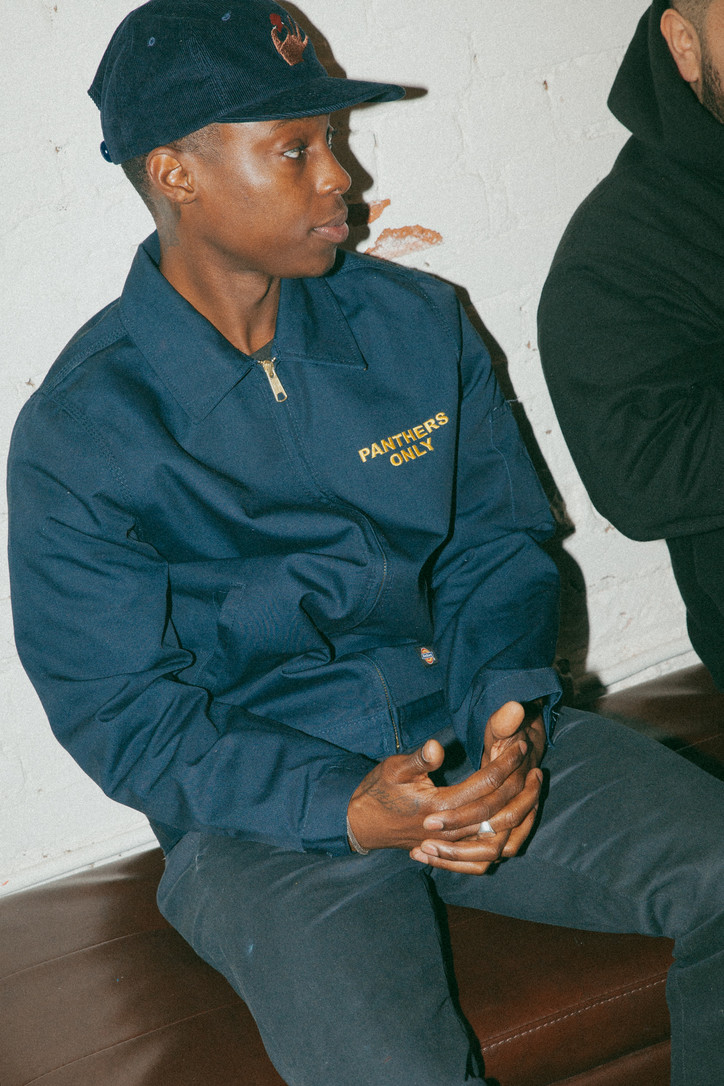
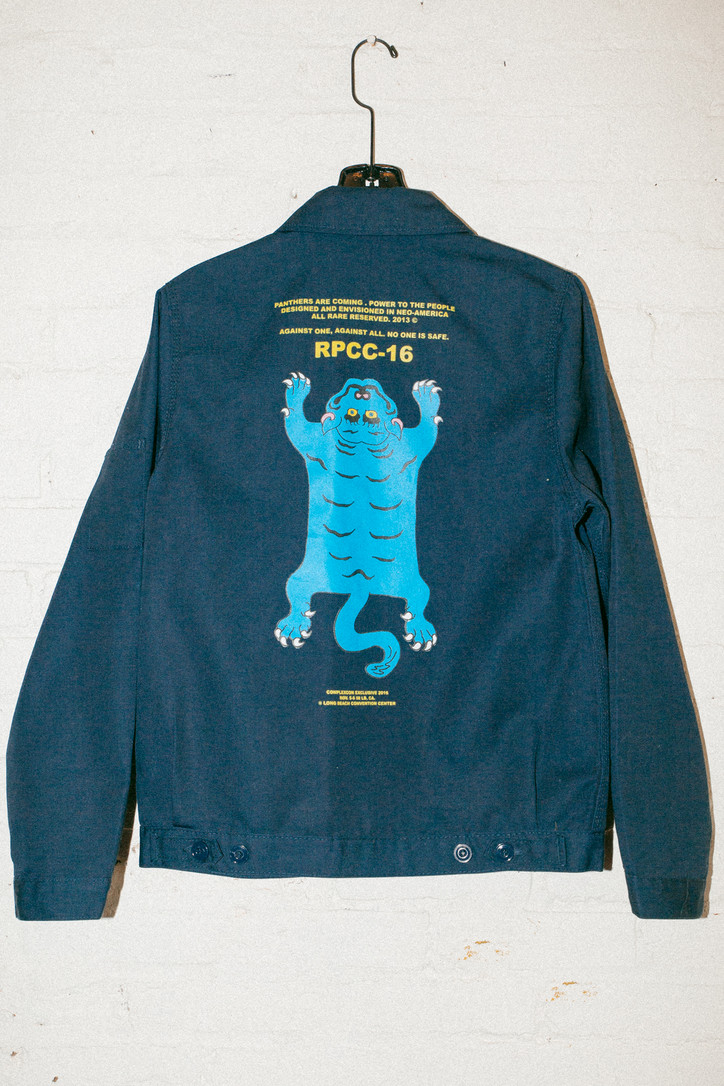
What does Paulo do for the brand?
Reggie: P pretty much manages the brand and its movements. P also creatively markets the brand. I focus on the soul of the brand, who we are and what we stand for, creatively and conceptually. P has his hands in those areas as well. Through his marketing genius, if you give him anything he maximizes it and takes it places no one else can.
Can the public buy Rare Panther stuff now?
Paulo: Of course. Not the old graphics, but that’s how we got started. With that, we got over 500 emails of kids trying to buy our stuff. They were like, “am I rare enough to wear/buy this? How can I buy this?” And I was like, holy shit. This is working. And that’s how it started.
How has the brand changed?
Reggie: It’s grown. In the beginning all the inspiration was definitely driven by things we've been inspired by through this streetwear culture. Now, it’s more about the heritage of what drives us a people, our morals and our beliefs. Our ideas now are based on what moved me in the first place like The Black Panther Party, more about empowering people. That’s where our true voice is best being shown. And when I talk to Paulo about these things, we both can relate. It takes both of our creativity into a whole new level of depth.
Things are more organic now. Conversations that we have about his life and my life, our struggles on being minorities and using that to empower others. All that conjures up what the brand is now. Its almost feels like we've re-birthed the brand from where
we started. I feel like now it’s exciting again because it feels new.
Is it hard running a business with your best friend?
Reggie: No. You get to do something you love with one of your best friends.
Do you argue?
Reggie: All the time.
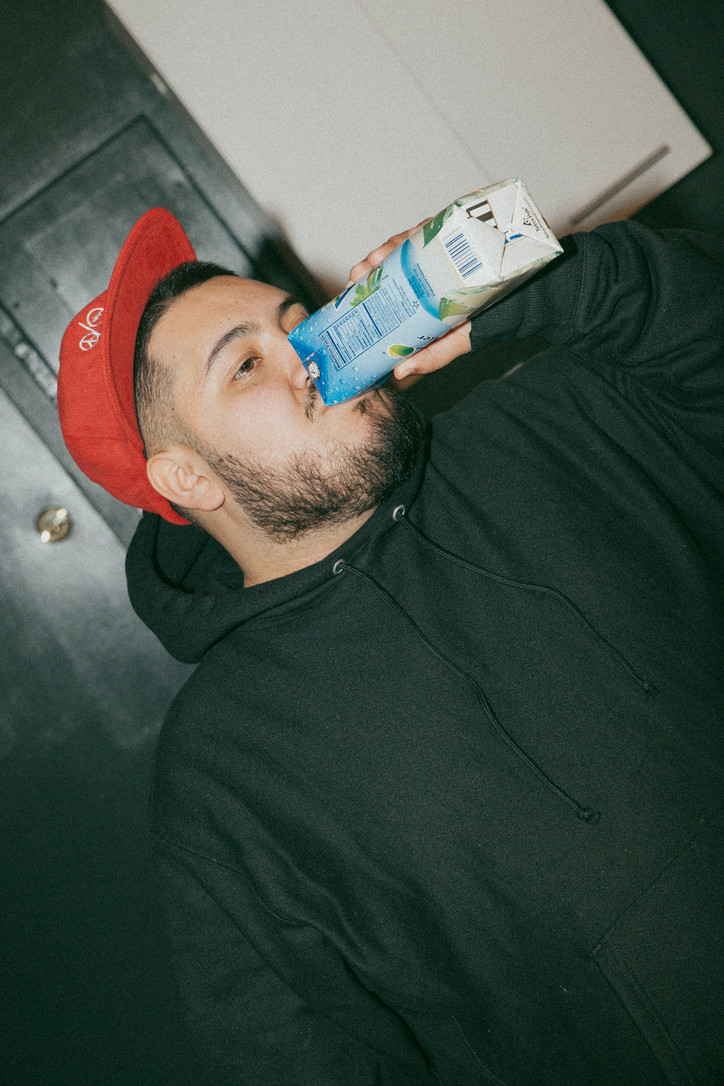
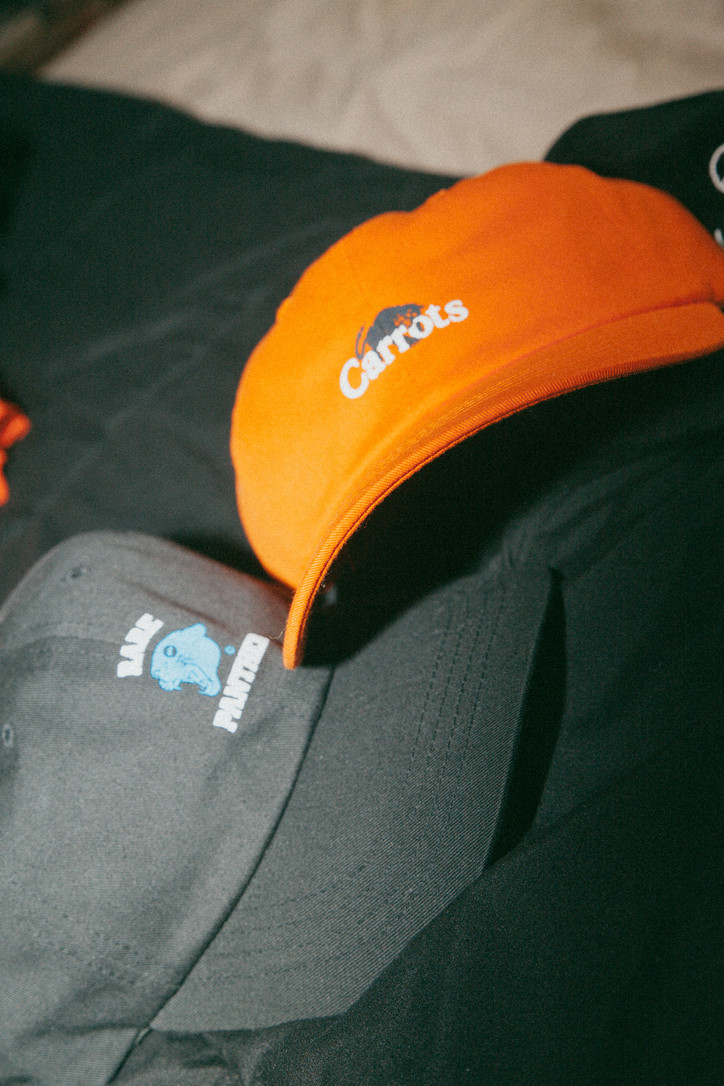
How do you run a business together when one of you is in LA and one in NYC?
Reggie: Ifeel like that’s why it works. It creates balance. If we were in the same city we would’ve killed each other by now lol. Seriously by just communicating. I feel like we can do this with a mind of whats happening on both coasts.
What are the differences between LA and NYC for you guys for the brand and the customer?
Reggie:Big ones!
Paulo:I love LA. It’s way different. LA is a good foundation to have a brand and a business because of all the resources you have available. But in NYC the struggle is real and people are more creative. With struggle comes creativity I guess. I feel like people in NYC are definitely more creative, but LA has all the resources for you to make it happen. I drive 5 mins from my office and the resources are there. It’s good for space too. It helps both of us. He designs all the clothes in NYC and I market the clothes, so as long as he’s creative in NYC and I’m doing everything else in LA it just works.
You’ve done several collaborations with artists and brands. How many collabs have you done since the brand was created?
Paulo: We haven’t done that many. A good five or six. Some of them include Carrots, 21 Savage, Dirtbag, Trillelectro and The Freedminds. Every collaboration has been organic or they are our actual friends. I like to collaborate with people that I have real relationship with. Someone I already have a connection with. I don’t want to collaborate with someone I don’t know or that I don’t know anything about, things get weird.
We don’t want to do too many collaborations either. We want people to understand our voice and brand first and foremost. That way when we do collaborate people have a better understanding of who we are as a brand.
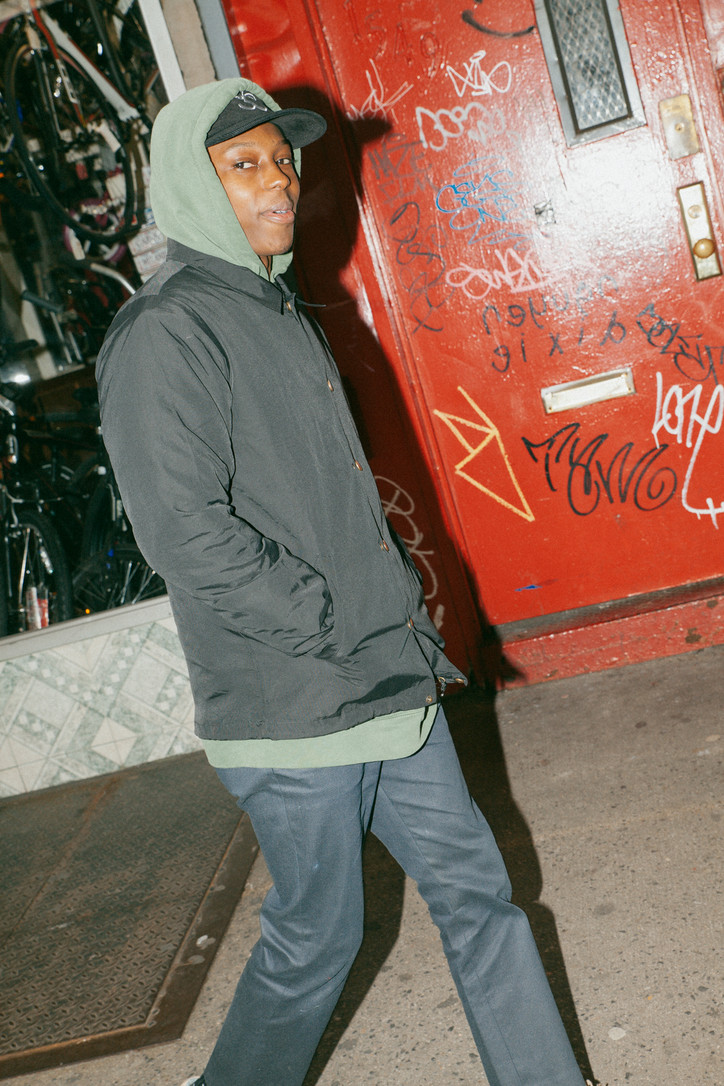
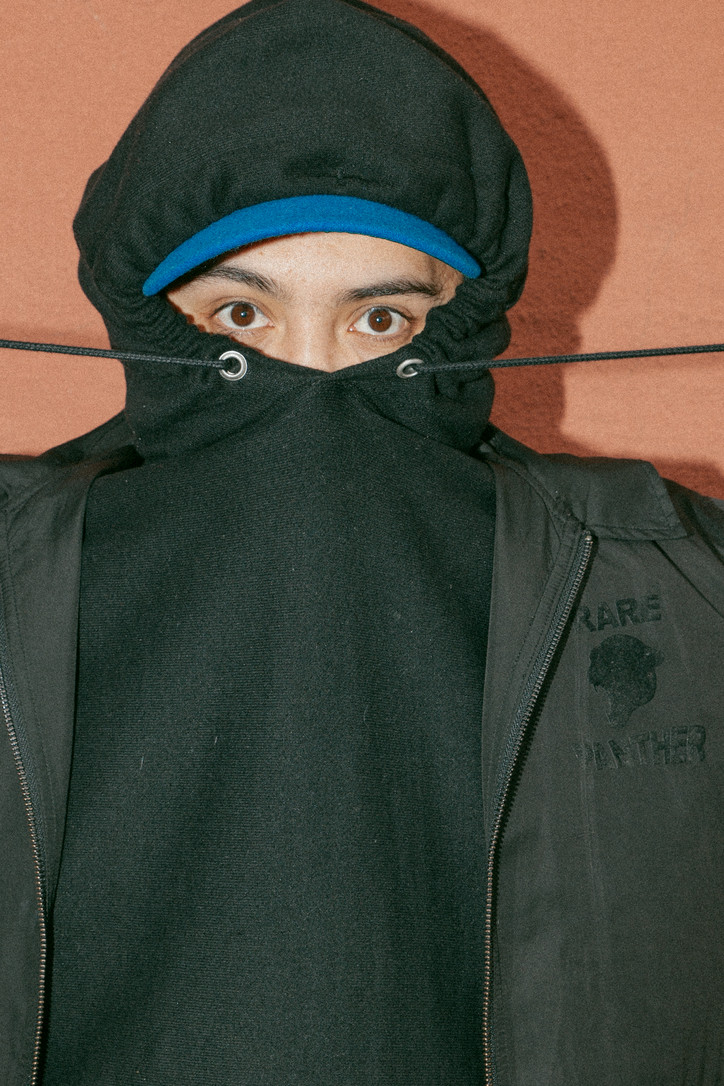
How did you meet all the artists/creatives who wore your brand when it first started?
Paulo: I feel like it was friends working and being in a creative city and space. All those creatives are our peers. We all grew up together creatively and culturally since we’re in a similar age bracket. I also feel like when you’re talented you just run into those type of people. When you’re an artist, a photographer, DJ, etc., you like certain things and you hang out in certain spots and you kind of just meet each other, alike minds. I didn’t even know who "they" were when I met them, then they just blew up. While working with Freedminds, we threw Odd Future's first San Francisco show.
For Reggie, how do you separate your own art from the brand?
Reggie: At first, my art was very graphic-driven so the relation between the brand and my art was similar. People would often get it mixed up, but since I’ve living here in NYC I’ve been able to take my work places I've never taken it before. My growth as an artist has separated the two visually. With a brand there has to be a certain consistency, a certain voice that you have to stick to so that its a brand that people can know and trust. As an artist, it’s more about elevating myself and doing something different. Taking my work to new heights.
I think it's a good balance because oftentimes I'll get bored with the brand, because I have to keep a level of consistency brand wise. The art side helps me grow my thinking creatively, so when I go back to designing for the brand it aids in that way. Now I approach my graphics in a different way. I try to marry this balance between brand and art. Rare Panther has definitely helped me as an artist. And the art has helped the Rare side as well.
Paulo: I feel like his art is like a journey. Very passionate and personal. For the brand he's just designer and creative director. So it’s like having two jobs. Whatever you do in your personal time is your personal time, and whatever you do for work is your work. That's how I look at it.
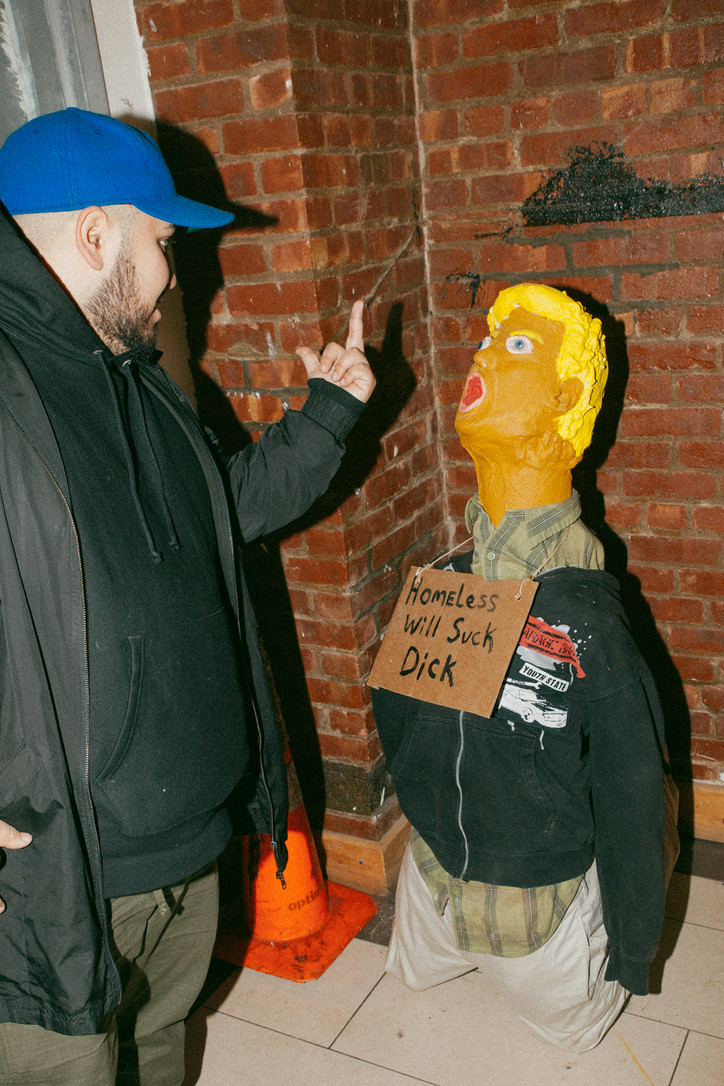
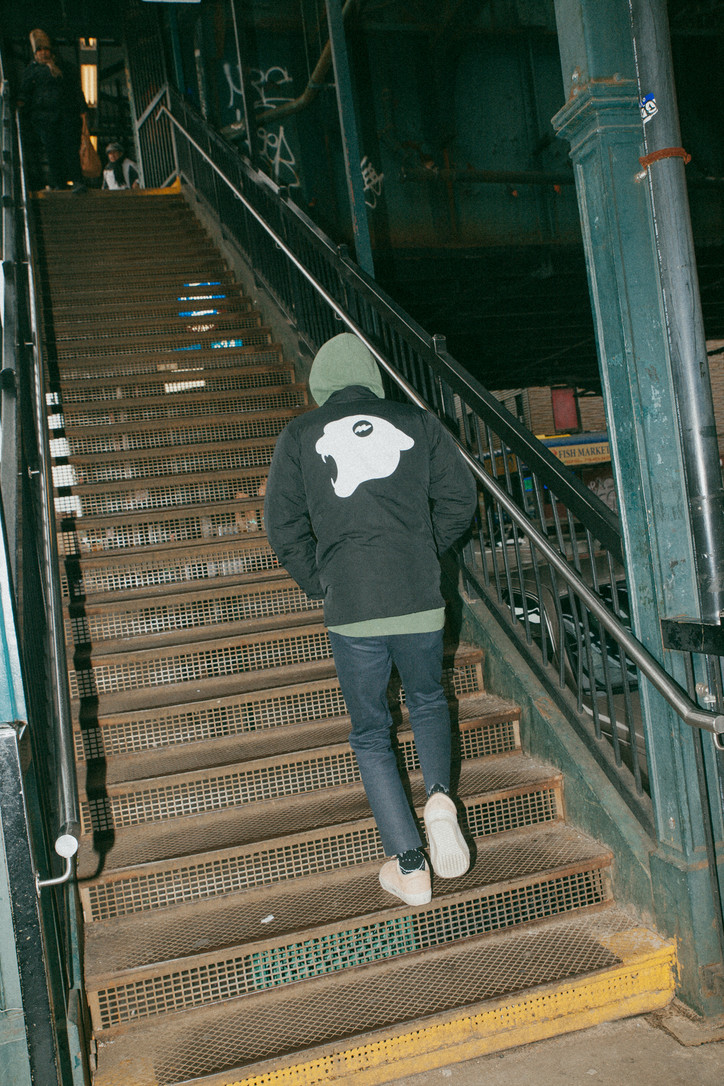
How do you balance being exclusive while also making money ?
Paulo: As far as exclusivity, everyone has their lane. There is nothing wrong with growing. When I talk to my dad he’s like, “you should be competing against Nike! You should go against Adidas! Why are you thinking so small?”, But I think you gotta have an identity and grow at your own pace. When you get forced into stuff, you can tell it's forced. Just like a photo. You can tell if it's organic or if it's posed. As long as we are at our own pace we're gonna be good. Our integrity is what’s important to us. Somebody said as long as you're supposed to do what you're doing, money and women will find a way to you.
Check out more from Rare Panther here.
